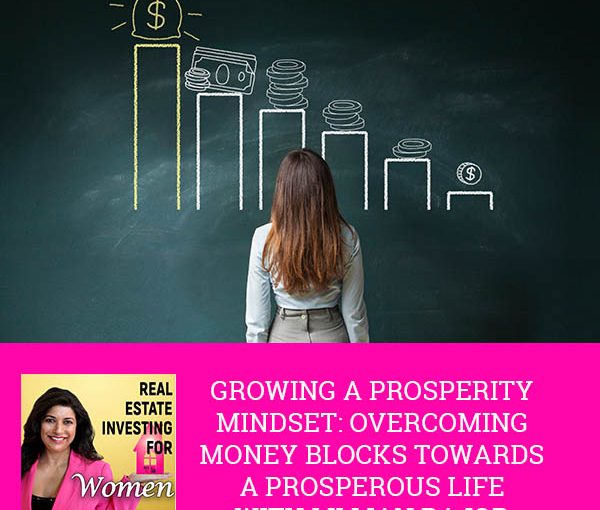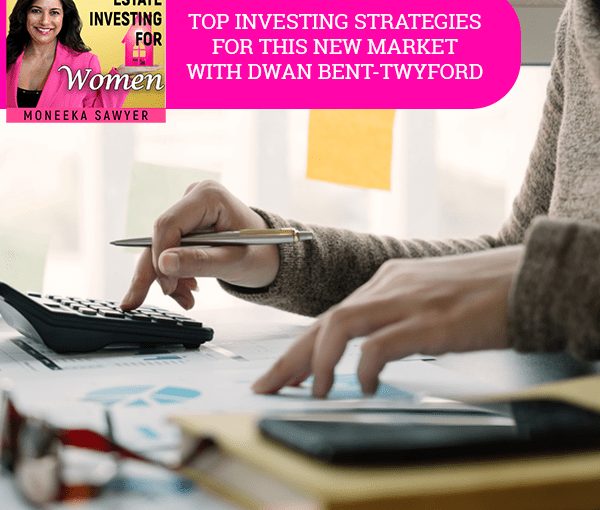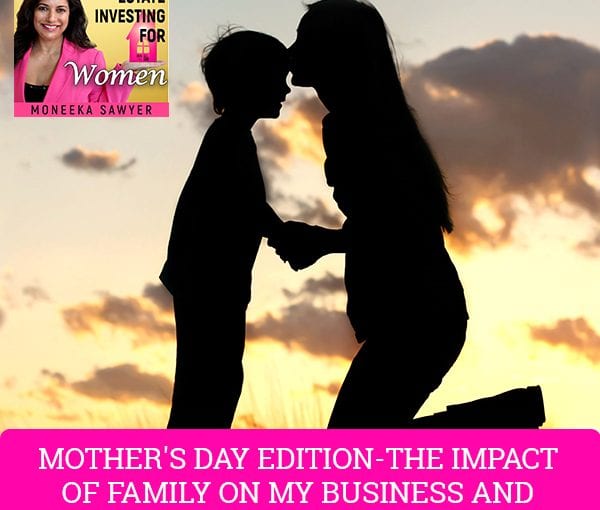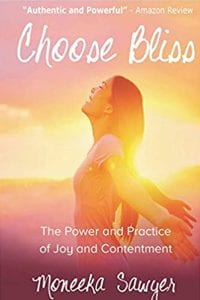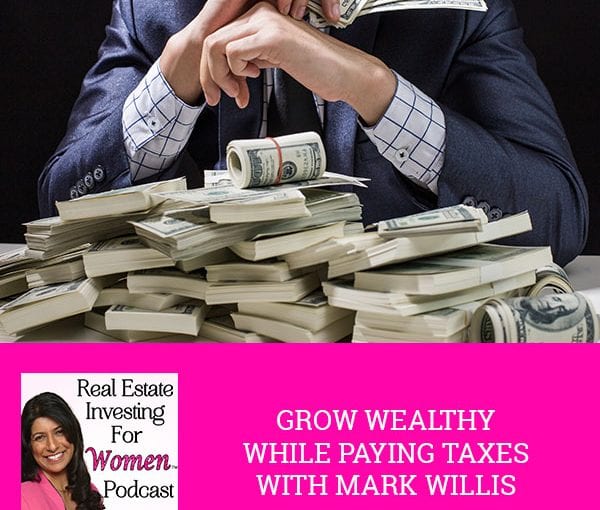Become the Bank for Passive Real Estate Income – Buy Notes
Moneeka Sawyer is often described as one of the most blissful people you will ever meet. She has been investing in Real Estate for over 20 years, so has been through all the different cycles of the market. Still, she has turned $10,000 into over $5,000,000, working only 5-10 hours per MONTH with very little stress.
While building her multi-million dollar business, she has traveled to over 55 countries, dances every single day, supports causes that are important to her, and spends lots of time with her husband of over 20 years.
She is the international best-selling author of the multiple award-winning books “Choose Bliss: The Power and Practice of Joy and Contentment” and “Real Estate Investing for Women: Expert Conversations to Increase Wealth and Happiness the Blissful Way.”
Moneeka has been featured on stages including Carnegie Hall and Nasdaq, radio, podcasts such as Achieve Your Goals with Hal Elrod, and TV stations including ABC, CBS, FOX, and the CW, impacting over 150 million people.
Growing A Prosperity Mindset: Overcoming Money Blocks Towards A Prosperous Life With Lillian Bajor
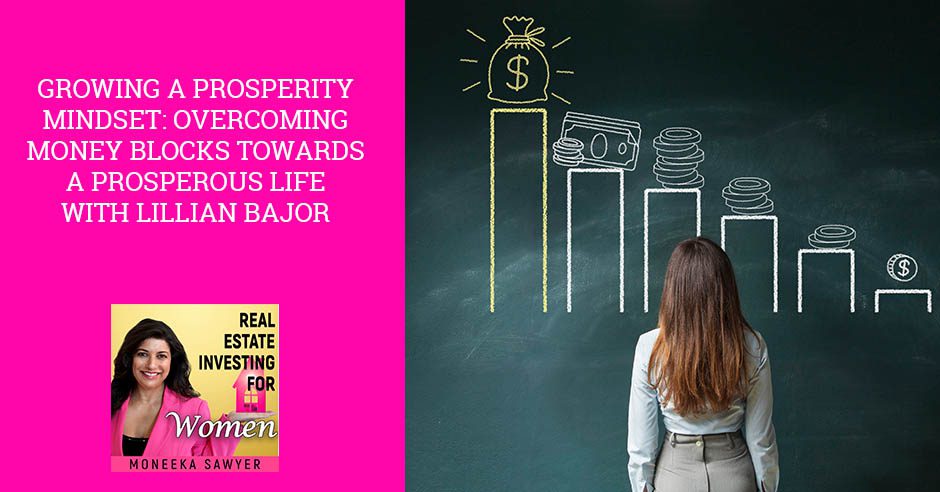
Are you earning but only to some extent and not as much as you should be? Are you stressed due to money concerns? In this episode, Moneeka Sawyer welcomes Lillian Bajor, Owner of Prosperity Coaching and Financial Literacy programs, to dive deep into our Prosperity Mindset, helping us find alignment in our prosperity consciousness to thrive and overcome money challenges. They discuss how the messaging we receive can limit us; therefore, we need to train our minds with affirmations, so we can develop prosperous thoughts and grow our mindset. Lillian then discusses the roles of parents in engaging children with financial literacy, building within them a strong financial foundation as they grow up. Immerse yourself in this conversation and learn more tips on how to change our relationship with money as well as the value of learning about real estate. Open your prosperity mindset today!
—
Watch the episode here
Listen to the podcast here
Growing A Prosperity Mindset: Overcoming Money Blocks Towards A Prosperous Life With Lillian Bajor
Real Estate Investing For Women
I am so excited to welcome to the show our guest Lillian Bajor. She is a personal finance and life coach, minister, and Owner of Prosperity Coaching & Financial Literacy programs. Blending spirituality and money, she helps people overcome their money challenges, blocks, or misconceptions, and open up to prosperity consciousness so they can thrive.
Her comprehensive coaching systems and style stem from overcoming her own financial challenges, plus a strong foundation in business, a solid financial education, as well as in-depth studies and finance through psychology, metaphysics, resilience modalities, body intelligence, and the healing arts. Her company serves the important need for financial literacy. Its mission is to educate and empower women and men with financial confidence and a strong financial foundation. Lillian, thank you for coming to the show.
Thank you so much for having me. It’s a pleasure to be here, Moneeka.
What’s so funny is I’ve had so many conversations with my audience. Frequently, the conversation of spirituality will come up. There seems to be a pull. People seem to feel like they’re against each other. My spirituality has to be in this box. My money has to be in this box. Money can’t contaminate spirituality, which is so fascinating because as Indians, we believe the opposite. Everything in our world is a part of our spirituality, including our wealth or our money or whatever. I find it fascinating how people here tend to rip those two pieces apart. I think both of them are such a big part of who we are. I love that you combined them also. That’s wonderful.
I’m going to be honest with you. It wasn’t intentional. It was the spirit. I was a minister at the time and I decided that I need to get the whole money conversation because I learned a lot about business but not about money. I was determined to master it because I kept having challenges and seeing challenges in my family. I was so grounded spiritually that when I started working with money, they got married because they too had a hard time with money. I was like, “This is too dry. It’s too boring.” It wasn’t when I was able to come into my spirituality and let that be my come from.
I also love that you talked about you had a lot of business expertise but not a lot of money expertise. I think that is going to be a key piece of this conversation because this is what I find out there. I coached CEOs, entrepreneurs, and solopreneurs for 15 to 20 years. One of those things that came up consistently is business and money are not the same things.
Just because you have a brilliant business mind and you make a lot of money, does not mean that you understand money. That’s why many people lose and gain money so fast in their businesses because they love building a business but they don’t understand how money works. It’s fantastic that you understand that those are two separate things and that you got educated on both of those.
Yes. I grew up in a family business. I’ve been working in the family business since I was fourteen after school but it was pleasurable. It was normal and natural. It wasn’t even a chore or anything. It was something me and my sisters did. It was fun. We would hang out. We worked and as I got older, I started working. My father had restaurants. He came to California and he had a wholesale stationery business.
I grew up within the family business and my father was an open book and a very savvy businessman but money was his thing. I ran a whole department, the advertising specialty department of the company. It was a special division, but the money was something he kept his eye on all the time. He didn’t feel at the time that women needed to earn or to know about money. He was from that generation. He didn’t give me the knowledge because he always came from the mindset that women are taken care of. It was something that I later realized that I want this education. I have all this business knowledge, but when it came to money, I didn’t manage my money well. I could spend it but I didn’t manage my money well. I was not financially literate.
That’s a big deal, learning how money works and how to utilize it in the best way in your life. Most people don’t get educated on that, men or women, but less so women than men.
Things are changing now and I’m very grateful and happy about it. I’m sure lots of parents are educating their children and letting them be aware of the whole money conversation. In my generation in the ’50s, women didn’t even work. That was before me, so we’ve come a long way. I was lucky that we had a family business where I received all my business knowledge, but money was a different story back then.
I was born in the ’60s. It was still not something that women were taught at all. I was the oldest of three sisters and I was still very interested in it. I learned a lot from my dad. I would help him write checks and we would talk about bills, taxes, and all of those things that no child wants to learn. Somehow I was interested. It was a way for me to spend time with dad.
However, the other two girls had no knowledge at all. Now, as we’re grown-up women, both my sisters are very smart women, but I’m much more financially adept than the other two because they weren’t interested in the conversation. Some of it is the environment and some of it is an interest. For those ladies that have young children and you want them to be financially literate, it’s important for you to engage them in the conversation because as they grow up, they become more financially literate.
This is another thing that happens. People are like, “You don’t want kids to be thinking about money all the time. Money is not important. Let them be children.” All of those things are true except that money is not important. The reality of life is no money equals homelessness, illness, and all of those other things. Money is a reality in the way that we live. Educating our children, if you want to make it fun or cute or whatever, that’s great. You need to engage them in that conversation because you don’t want to just throw them out into the real world and then have them figure it out. You would like to have them have some foundation around that.
I want to bring up the mindset of people that would think you don’t want children to think about money. Why not? Why would money be that subject that you would put it in a place where it’s like, “Children shouldn’t be exposed to money? Money is not a burden.
It’s not a bad thing.
You teach them to brush their teeth. You teach hygiene, nutrition, exercise, and education. Money is just another part of life. To bring it out of that place where it’s taboo, “Don’t burden children.” That’s what I’m hearing when they say children shouldn’t need to know about money. It’s a part of life.
Children should know about money. Money is not a burden. It is just another part of life. Click To Tweet
I often will give my nephew, my youngest sister’s son, candy money for his birthday. His favorite thing in the whole world is candy. I give him candy money and then we take the candy money, whether it’s $10 or $20, and we go to the candy store. We tell him, “You got this much to spend so you need to figure out what you would like.”
He might spend two hours at the candy store trying to figure out, “I could get this. That’s cool or I could get these three items, they’ll fill my basket more,” or whatever. He’s learning about creating priorities for what’s important to him. He’s learning Math. He adds up every single scent in his head. He’s amazing at Mathematics because of this. He reads all the descriptions on the back so he knows what he’s getting. It’s helping his reading.
He’s learning about money inadvertently. This game has turned into this thing that helped him in school, in Math, reading, and prioritizing when he is trying to do his homework, “What do I prioritize? What’s more important?” If I want to do this game or play the piano, which one is more important? It’s interesting the way that he took a money conversation and turned it into a life-learning lesson. I’m amazingly impressed with that, and the way that it’s changed his outlook on life because his very playful. There’s nothing heavy or burdensome about it, but he’s learning about all of it at the same time.
I think it’s brilliant. It’s learning buying decisions at the age of eight without even knowing that you’re learning something that’s so valuable and important for his life.
Let’s start here by defining prosperity the way that you see it.
This came to me. The prosperity consciousness is being in harmony with the flow of life and being in harmony with our true self. When we’re spiritually aligned, we’re aligned with prosperity. That is the way the universe is. I know you know this. We live in a spiritual universe. We’re not taught that, but we do live in a spiritual universe. Everything is in harmony and balance.
The prosperity consciousness is being in harmony with the flow of life and being in harmony with our true self. When we’re spiritually aligned, we’re aligned with prosperity. Click To Tweet
It’s a perfect ecosystem. We messed with it. We messed it up. We’re experiencing the results of that like oil spills, rainforests, the ozone layer, and all the climate issues we’re having. Before all that, I’m sure when you were young and certainly when I was, things were very much in a lot more harmony and they still are. As humans and spiritual connecting spiritually, it’s being in this consciousness of knowing that you’re taken care of.
It does come from within and I’m speaking of intuition, inspiration, meeting the right people, and being in the right place at the right time, and is lined up with that. That is that prosperity consciousness where your life is in balance and there is fulfillment because there’s alignment to our true nature. We’re being guided from there, and the world is not set up like that because we go to school and everybody was in a cookie-cutter. You’re going to go through life and this is the way it is. Connecting to our natural gifts and talents wasn’t a part of it, but when we move into that consciousness of being inwardly aligned, we’re taken care of and we’re aligned with prosperity.
Talk to me about the prosperity mindset. That’s what prosperity looks like but talk to me about the mindset.
There’s more than one layer. A prosperity mindset is training the mind to think prosperous thoughts. A lot of the languaging and a lot of the messages are limiting us. You can’t do that or you don’t do this. It’s all this language and all this direction of how to live our lives and what to do. A lot of times, we’re being limited but our minds can be trained through affirmations. That’s one step to growing a prosperity mindset.
Another big piece is growth and constantly educating and growing. In our experiences, if we have succeeded in life but we’ve done something good and we’ve had a great day, to give you that and to anchor in what was great about that, and to align with that. How I moved through that day. How I created that. How I participated in that. How did I make it happen? Even though there may have been some bumps and roadblocks in the way that I moved through them, I got to where I needed to be.
That’s part of the prosperity mindset. Another big piece is when there’s a failure and some are bigger than others. I’ve had my fair share when it came to money and that’s why I’m doing the work I do. I was in a lawsuit and I had a bankruptcy. I had all kinds of things. To use those experiences, which can be so difficult to work through and to grow through, but to look at the gain. What is it that I didn’t understand? What did I need to learn? How can I use it for my upliftment? What are the treasures here? I’m big on that.
When I was in school, they called it a golden rung in the ladder and we’re climbing the ladder. It’s like getting a Harvard education. You go to school and you learn all this knowledge, but when you’re out there in the streets, you’re doing it, you’re taking these risks, and it doesn’t work out, then instead of doing a launch and it did not succeed, and then, “I’m never going to do that again.” I did a launch. I didn’t succeed. What did I learn? What can I do differently? Start going into that. That is a prosperity mindset because it’s expanding and it’s looking for upliftment and gain rather than judging or contracting.
What do you think it is that stands in people’s way of experiencing prosperity? I know this idea of contraction is a big piece of that. What causes that?
It’s fear of the unknown. For a lot of people, it stops them and staying in their comfort zone. My life was one where I was kicked out of my comfort zone because of my finance. A lot of it was financial challenges, and that was the impetus of what is pushing me to constantly do the work I’m doing around financial literacy because I’m learning and growing. I am understanding that I need to master this.
For whatever reason, I need to get it. I have business skills. I have a lot and I’ve learned a lot. I’ve had a lot of challenges for a reason. My father had a lot of challenges but it’s that fear and thinking that our mind is finite. It’s like a computer. Many of us know this. Whatever you put into a computer is what you’re going to get out. If you need it to put a certain key or a certain letter in there, if you need it to code it a certain way, you are not going to get in there if you don’t have the password.
Think about that. We need to program our minds. The information we’re getting from our minds is what we’ve learned, what we’ve seen, and the messages we’ve received. It’s been from childhood. We don’t even remember half of them. Some of them are inherited beliefs. I’m not going to say it’s junk, but it’s a lot of material that probably doesn’t serve many of us.
This fear comes in. We don’t even know where it’s from, but it contracts us and stops us from experiencing prosperity. The example I would like to share is my father. He was an incredibly savvy businessman. He came to this country in 1956. He did not speak the language. He spoke Hungarian. My mother and my two older sisters were babies.
He had the courage and the bravery to be like, “I’m going to America.” It was because there was communism and all kinds of things in his country. He was a man that wanted to make a lot of money and he felt very limited. They came to America and he became a multimillionaire. In 1980, at that point, he was incredibly wealthy. He invested in real estate and I don’t know the reason behind that. I don’t recall what that was but I worked with him at the time. There was a brand new building that was built in Englewood on Ivy Street.
The warehouse is where his business was and where I worked. There was another piece of building on the lot. He rented it to Milne Truck Lines. It was quite a large block. He owned that. He owned a property in Palm Springs on Camino Real. It was a gorgeous home. He also owned a property up on Sunset Plaza. It was on Rising Glen. It was a gorgeous home. In 1980, he was growing very fast. He factored his business, a portion of the money, probably more than he should have. I know about the factoring because I remember going to the office. I was young. I was in my early twenties, but he was very much of an open book when it came to business. I was familiar with that.
What is factoring for my ladies that don’t know?
Factoring is you sell your invoice and you get paid upfront a certain percentage because there is a guarantee that the money will be paid. You’re getting the money in advance. It’s a way to grow your business and he didn’t know about that. I think that was something that was new. Whereas if you grow your business and it’s your own money and your own cash, you don’t want to be factoring money. I don’t know what to compare it to actually.
It’s preemptively spending. It’s a little bit like a credit card.
However, it was for business growth. It was the expansion that was happening. The business was booming and then there was the recession. The factor pulled everything. He lost everything. It was a difficult part of life because I was there and I remember it. Everything went crashing down. The part that I remember about my father who has passed away since then is he became a millionaire again, but he did learn in a business where before he was a wholesaler of stationery.
He carried all kinds of office supplies that you see in Office Depot and that you see in these office supplies. He had whiteout, he had copy paper, he had the big pens, crypto pens, pentel, and tons of office supplies. That’s what he did but his business was wholesale. He was selling at a very small margin but in very large quantities. That was his business.
What he did after he went bankrupt was decided that everybody would always need a pen. No matter what, people would always need writing instruments. He became a millionaire again and he did writing instruments. That’s all he did. He expanded into advertising specialty products, which is the division I got to run and grew into.
The thing that I want to highlight is real estate. What I was super surprised at is that he lost all of this money in real estate and he contracted. He went into fear. He didn’t educate himself. The thing with my dad is that when it came to real estate, he didn’t do the same thing. He didn’t use the same prosperity mindset because he had an incredible prosperity mindset, but instead of expanding and educating himself about real estate, he contracted. He moved because he lost the house that he was in that he owned at the time.

Prosperity Mindset: He lost all of this money in real estate, and he contracted. He went into fear. He didn’t educate himself.
We moved into a couple of houses down. He lived on the same street for two decades on Rising Glen but he was renting. I remember that the owner wanted to sell the house and he offered it to my father. My father would not buy it. He was afraid. He totally contracted. He went into a scarcity mindset, and he wound up regretting that because he was accustomed to living on top of a hill and the quality of the air up there. It’s the whole lifestyle. He wound up living in Beverly Hills in a beautiful apartment. It’s huge like a condo that he wouldn’t buy. He paid rent for the rest of his life. He was wealthy and he had the money but he didn’t educate himself about real estate.
I have a question about that. I know this is an interesting thing to say on a real estate show, but real estate is not for everybody. There are some people who it is not the right fit for them, and they still build wealth. We know the numbers. Ninety percent of wealthy people in the world own real estate and many of them have become multimillionaires through their real estate investments. Real estate is a huge part of the portfolio of the very wealthy. However, there is the 10% that’s not true. It sounds like your dad was one of those people.
Real estate is a huge part of the portfolio of the very wealthy. Click To Tweet
I’ve never met anybody that’s like that. Real estate is not for everybody. I get that. It is the one thing that we in America have access to that the government completely supports. It’s a no-brainer way to build wealth because of the way the laws work here in the United States, but not everybody wants to get into it. I can see from your dad, he had this huge real estate empire. He lost that empire because he made some noble but questionable decisions in another business that was supporting real estate.
He then decided he didn’t want to do real estate. When we talked about that, he didn’t get educated, and he didn’t get back into real estate. Did he suffer for those decisions? What do you feel was the opportunity cost may be or the consequence of him not going getting into real estate on his second round when he rebuilt?
It was a very substantial loss. He could do the things he did because he was young and he had this enormous amount of energy, enthusiasm, desire, and ambition. At that age, it was different. He had grandchildren by then. My daughter was born in 1980. He’s an older man. There’s a lot more that plays into it and I think it may have chipped at his sense of empowerment over, “I can do anything.” I can’t. That’s not my arena. I don’t have the knowledge.
For some reason, I don’t know what the block was to get the knowledge. In business, it was almost like an intuitive automatic response. This didn’t work. I’m going to do this and made it happen. It was so quick but in real estate and personally, my takeaway was he didn’t have the knowledge, to begin with, to take that kind of risk.
Why go factor and try to grow the business this fast? You are doing great. I think it was spinning out because sometimes the growth is so quick, and not watching the economy and not knowing in. It’s not having enough education on a broader scale. There’s me, my life, and my business. What’s going on with the planet? What’s going on globally? What’s going on in the world? Am I watching the trends? It’s like having a more expansive point of view rather than just, “This is my world. This is what I’m doing.”
For the ladies, I hope you enjoyed that. The reason that I wanted to dive deep into that is because we do see very successful people that have these fear responses to perceived failure. He lost everything in real estate and decided, “I’m not touching that again. I don’t know enough and I don’t want to learn enough. I’m done.” I think that this can happen.
We’ve had so many people on my show who lost everything in 2008 or had huge failures because of bankruptcies, medical bills, and all sorts of stuff, or a child that needed help or had a birth defect. There are many people that have built up these amazing real estate businesses, and then they completely collapsed underneath them. The people that come on my show are usually the people that pick themselves back up and made it work again.
I never get a story on this show of someone that said, “Nope, I’m done,” and experienced a lot of success in a different way. However, there’s a perception in the family, or at least in his daughter that there was a loss there that happened because he wasn’t resilient around that business. I don’t know that I got a full understanding of what happened. There’s no way to know in such a short conversation. What I do want to know and what I do want my ladies to hear is that this happens to the very best of us, and it does not need to be the end.
When you watched your dad and it was the end for him, it has inspired you now to pursue education around that and to help teach others around that so that they don’t make the same mistakes. Even though this mistake didn’t cost your dad his lifestyle or his happiness or necessarily his self-confidence, it cost him something that you are sensitive to, and that you don’t want other people to experience.
A lot of that is not living in fear. You want people to be free from that fear monster so that they can live in all the different kinds of prosperity that we have like financial prosperity, health prosperity, feeling and alignment, and joy. The prosperity of joy, which I call bliss. All of those things are important to people like you and me. Maybe that was a piece of the loss, but it doesn’t sound like it was much bigger than we can pin down in a show.
I wanted people to hear this conversation because they don’t hear it here. I wanted people to understand that I do get it. Sometimes it’s hard and sometimes things fall apart. At that moment, you choose or in that timeframe. It may not be a moment. It may be a moment or a phase of your life, and you choose what are you going to do with that. It’s what you were talking about. Are you going to learn? Are you going to expand? Are you going to grow? Are you going to contract? Is fear going to start controlling your life in a certain way that doesn’t serve you?
I think there are a lot of factors and I do love this conversation because it’s who you are and who I am. We’re the next generation. He’s also of a different generation. He has done a lot. There’s a lot here. We could probably enjoy going much deeper and getting a lot more insight, but it did change his personality. What I love is that it changed me too. When I look at financial literacy, it’s hardcore all-money topics. I go wide on all money topics. I call that financial literacy.
I realize and I think this is part of why I naturally go there. It’s because I also have a background in healing. You want to go wide. You want to understand money because if you’re going to be making money, you’re going to wind up wanting to buy real estate or a condo or something. You’re going to then need to know about other conversations around money, mutual funds, or having investments. It’s this deep and wide knowledge of money. When things happen because they will and they do, you can take it in strides.

Prosperity Mindset: If you’re going to be making money, you’re going to wind up wanting to buy real estate or a condo or something. You’re going to then need to know about other conversations around money.
Also, be resilient. Bliss is about emotional resilience. Emotional resilience happens in partnership with resilience in all areas of your life. Your emotional resilience leads to resilience elsewhere, but that resilience elsewhere has to be a priority. In other words, you can’t just say everything is fine because it’s fine inside of you. That’s the single most important thing. However, if you want your life to work, you need to be resilient in the entire spectrum of what you’re paying attention to or what’s important to you.
The whole idea of being resilient is what bliss is all about. It is being able to come back to this place of balance. Balance isn’t my favorite word. I call it equilibrium. You come back to this place of emotional joy where then you can look out into your world and be resilient in everything else that you’re doing. Even if things are crashing down around you, you can now be resilient and bring them back to a place that serves the joy in your life.
I’m going to bring this up because what I’m hearing you say that I love, but it’s also that inner alignment to prosperity. Here’s what’s evolved for me. It’s the inner alignment with prosperity, regardless of what’s happening on the external. Keep going deeper into that and letting that be well that is nurtured and cultivated. I do the work every day because things are changing constantly. I’m working with people. I’m living in a world. I’m out there. I’m participating fully. I’m realigning always on a deal.

Prosperity Mindset: Keep going deeper into that inner alignment with prosperity and nurture and cultivate that.
Sometimes a couple or more times a day, I’m realigning myself even during this conversation because I’m talking about a lot of loss that I experienced, lived through, and was a part of. There was incredible wealth after that. I was there for the cycle. Thank God that I got to see the wave of it. It came right back. He made it last but he did contract as a personality.
He contracted as a personality. It didn’t feel to me like his confidence because he exuded that, but it did do something. I don’t have the word for that right now. It will probably come up for me. I love that you went onto a deep dive and maybe it will trigger something in the audience and they will all have their own a-ha from it.
I hope so. I know that I was simplifying it a little bit and I didn’t mean to be disrespectful in any way, but I was trying to get there, “What was that thing?” Sometimes we can’t pinpoint it. It’s just that something changed.
For him, what I’ll tell you is he contracted. I didn’t want to say this, but I’m going to say it. He lived like he was immortal. He could do anything. Nothing could hurt him. That’s the way he lived his life. That’s the way he took these huge risks and kept bouncing back. I think that loss chinked his armor and that he’s not immortal.
It made him mortal.
It made him feel mortal. It’s like, “Holy cow. Something can really ouch.” He didn’t show it so I can’t share. He was the kind of guy that didn’t show it.
This conversation has been amazing. I know there was some stuff we didn’t cover and we’re also out of time so we can’t do the three rapid-fire questions, but I love the conversation. I know you. I know our spirits are connected so I wanted to do a deep dive into that and I hope that was okay. Thank you so much for being vulnerable with me and talking through that. I super appreciate that.
It was a pleasure. I enjoyed it too. I’m used to going deep and I like it.
You’ve been amazing. I’m sure my ladies are going to want to know how to get in touch with you. Talk to us a little bit about that. How can my ladies get more?
I would love to connect with whoever would like to find out more about my work and what I do. My website is LillianBajor.com. You’re welcome. Thank you so much for having me on your show.
Ladies, Lillian has offered for EXTRA to do a meditation with us that’s about inviting prosperity into your life. She’s going to guide us through that in EXTRA. Stay tuned. If you are subscribed to EXTRA, we got more. If you’re not, go to RealEstateInvestingForWomenEXTRA.com and you can sign up there. For those of you that are leaving Lillian and me now, thank you so much for joining in this conversation. I look forward to seeing you next time. Until then, remember that goals without action are just dreams. Get out there, take action, and create the life your heart deeply desires. I’ll talk to you soon. Bye.
Important Links
Love the show? Subscribe, rate, review, and share!
Join the Real Estate Investing for Women Community today:
Get Dr. Shaler’s free EBook: “How to Spot a Hijackal” at https://www.forrelationshiphelp.com/help-handling-hijackals-spot-signup/
To listen to the EXTRA portion of this show go to RealEstateInvestingForWomenExtra.com
——————————————————
Learn how to create a consistent income stream by only working 5 hours a month the Blissful Investor Way.
Grab my FREE guide at http://www.BlissfulInvestor.com
Moneeka Sawyer is often described as one of the most blissful people you will ever meet. She has been investing in Real Estate for over 20 years, so has been through all the different cycles of the market. Still, she has turned $10,000 into over $5,000,000, working only 5-10 hours per MONTH with very little stress.
While building her multi-million dollar business, she has traveled to over 55 countries, dances every single day, supports causes that are important to her, and spends lots of time with her husband of over 20 years.
She is the international best-selling author of the multiple award-winning books “Choose Bliss: The Power and Practice of Joy and Contentment” and “Real Estate Investing for Women: Expert Conversations to Increase Wealth and Happiness the Blissful Way.”
Moneeka has been featured on stages including Carnegie Hall and Nasdaq, radio, podcasts such as Achieve Your Goals with Hal Elrod, and TV stations including ABC, CBS, FOX, and the CW, impacting over 150 million people.
Top Investing Strategies For This New Market With Dwan Bent-Twyford
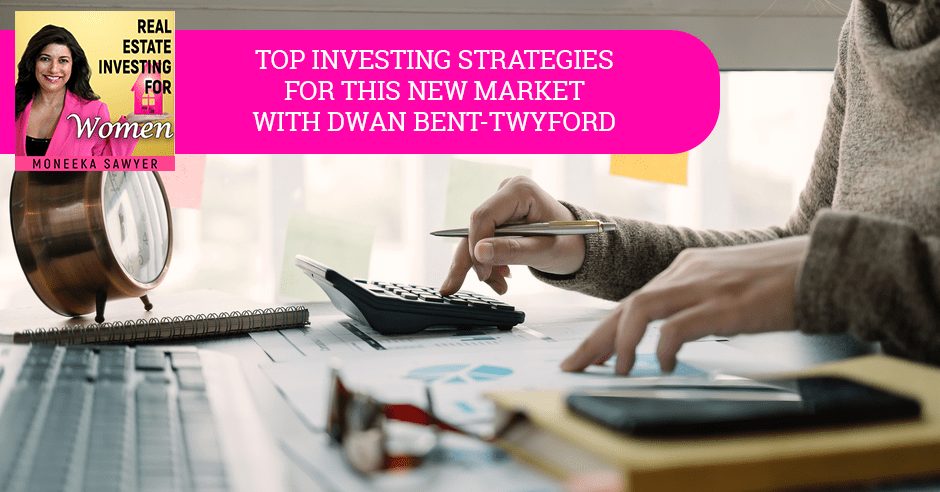
The pandemic caused a lot of suffering in most business industries, and so much transition happened. But we’re all figuring out a way to survive. So, tune into this episode to learn the secrets to success amidst adversities. Moneeka Sawyer talks with Dwan Bent-Twyford on the top investing strategies in the new real estate market. Dwan is affectionately known as the Queen of Short Sales and the nation’s number one expert on short sales and foreclosures. Her goal is to help and make a difference in people’s lives. She shares about taking the initiative, sending your message across, and staying persistent in what you want to achieve. She also shares the importance of self-care and healthy routines.
—
Watch the episode here
Listen to the podcast here
Top Investing Strategies For This New Market With Dwan Bent-Twyford
Real Estate Investing For Women
In this episode, I’m excited to welcome to the show Dwan Bent-Twyford. She started as a broke single mom who had been fired from Denny’s. She now heads up Investor’s Edge University, a company that specializes in training new and seasoned investors in a wide range of real estate investing techniques through live workshops, weekly webinars and other stuff. Having flipped over 2,000 deals herself, she is more than qualified to share her vast knowledge of real estate investing with America.
She is affectionately known as the Queen of Short Sales and is considered to be the nation’s number one expert on short sales and foreclosures. She has written three bestsellers, Short-Sale Pre-Foreclosure Investing and How to Sell a House When It‘s Worth Less Than the Mortgage. Her most recent New York Times Best Seller was written with Steve Forbes, SuccessOnomics. Her goal never changes. It’s always to make a difference in the lives of others. Dwan, welcome to the show.
I’m excited. I’m happy to be here.
We had so much fun on your show. I have been looking forward to this conversation forever.
When you were on my show, it was so great.
Forbearance has caused millions of people to inadvertently find themselves in foreclosure right now.
Ladies, her show was supposed to be an hour. We were on for 1 hour and 15 minutes. We were both like, “We can’t stop talking.”
Everyone listened. It got a lot of hits and people loved it.
I’m glad to hear that. I’m always happy to offer my experience and wisdom. Now, it is all about you. Dwan, tell us your amazing getting started story because I love it.
It’s funny when I think about getting fired from Denny’s because I used to work the third shift. I worked from 10:00 at night until 6:00 in the morning. It was in Fort Lauderdale and it was what they call the Big Denny’s, which is all the nightclubs were around there. People came in at night. I knew a lot of people that were in the bar business and different things. Once in a while, I would maybe have a drink or something with one of my people and probably does something I shouldn’t have done.
They had transferred this daytime manager. She was in trouble for something. She got to transfer to the nighttime. She hated the nighttime people because she was like that 5:00 AM, getting people their breakfast in the one door. She hated all the loud and the people that came in at night. One night, I might have had a drink or two at work. She had said something to me and I pat her back pretty solid. At 3:45 in the morning, I got fired.
I remember looking back and thinking, “Who gets fired at 3:45 in the morning? What is that about?” In hindsight, getting fired from Denny’s was super embarrassing. I’m not against anyone out there that works at Denny’s. I worked there for a long time. I still love those Grand Slams but I thought, “How on Earth am I fired from a job like that?” As it turned out, in my twenties, I was fired from a lot of jobs. You can look at all your friends, you know what all their problems are and you can tell them how to solve all the problems. I was that person.
I would work for a company and go, “If you would do this and this, your company would be so much better to the owners of the company.” Many people did not appreciate me telling them how they could do a way better job but they were listening to this young twenty-year-old girl that had blonde hair, big Madonna perm and not taking me seriously. I got fired from a couple of jobs for faffing, back-talking and giving my opinion too often and too freely. I’m an entrepreneur inside. I just didn’t know it yet.
Tell us about the real estate story.
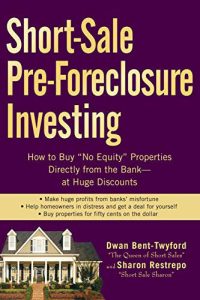
Short-Sale Pre-Foreclosure Investing: How to Buy “No-Equity” Properties Directly from the Bank — at Huge Discounts-
I was in my late twenties. I got married. I had a baby. I was 30 years old. In my mind, I thought this was my prince charming. I was going to stay home, raise kids and be the Girl Scout mom, homeroom mom and cookie mom. That was where my head was at. I remember my daughter was only eight months old when we separated unexpectedly. He took the car and the money and cleaned out the bank. It was gone. All of a sudden, I was like, “I have this eight-month-old baby and I have no job. Now, I have no husband.” It squelched my thought of what I thought I would do. It was smashed in one swoop.
There’s this term where people say they have a come-to-Jesus moment where something bad happens in your life. You only have to look hard and make a decision that could be life-changing. I was 30 years old. My daughter was little and I was like, “I still want to do those things. I want to be the homeroom mom, cookie mom and field trip mom. How do I make that happen because I have been fired from ten jobs?” I thought, “I could work for myself. I could take all those opinions I have had and put them to use but I didn’t have any skills and I didn’t know what to do.” That was my big dilemma.
As I was going out looking for jobs and something to do, I ran across some guys that were investors. They said to me, “We buy houses. We fix them up and we sell them.” Because I know nothing about real estate, investing or anything, my mind here was, “We’ll buy houses. We decorate and then we sell them.” I thought, “I can decorate. I have excellent taste. I will buy, decorate and sell them.” As you know, rehabbing and decorating are not remotely the same thing. I think this much but I didn’t know that.
I honestly think partially being so naive was a blessing for me because if I had truly understood rehabbing, the depths of it and what it would entail, I’m not sure I would have had the guts to do it. For me, personally, being naive was one of my greatest blessings because I didn’t know what I was getting into but once I was in it, I was like, “I have to make this happen.” I rehabbed this house. I took classes at Home Depot because I didn’t know how to do things.
I made $22,000 on my first house and I thought, “I was in this house. I worked in this house. My daughter was with me. I made $22,000. This is the greatest thing in the world. I’m going to do it again.” Many years later, here I am. I got this house. I ordered a carpet. I knew how to paint so I painted the house. Back then, people made a lot of custom-made blinds. I put in the plants and dealt with stuff. I can remember looking at the kitchen going, “That avocado kitchen and the yellow appliances, I don’t know who is going to buy the cabinets.” I thought, “Who is going to buy this house?” I said, “I need to fix that but I didn’t know how.”
I had been to Home Depot a lot buying some things and the guys were like, “You should take some of the classes.” I was like, “What classes?” They go, “On Saturdays, we do these classes.” I was like, “Okay.” My first class was how to lay a tile. I thought, “The kitchen and the bathrooms need tiling. This is a good class for me.” I measured the kitchen. This was a one-hour class. When I was done, I said to the guy, “These are the dimensions of the kitchen. I need the tile, the grout and the spaces for this much.”
I went back in all my excitement and tiled an entire kitchen. Later, I thought, “I should have started with the bathroom or something smaller, the whole kitchen.” I had to take some of it up. It wasn’t even. It was my first time. I remember looking at the bathroom and thinking, “I should have started in a smaller space but at this point, it was done.” When it was done, I thought, “It looks pretty good. I’ll pat myself right there.” There I went and I started learning how to fix things.
After all this time, you have been in the market for a long time. The market is a little strange now. Talk to me a little bit about what you see happening in the market now.
Grow your own wealth so that you can do more good in the world because if you don’t have wealth, you can’t do as much.
The big thing is everybody had that giant forbearance agreement since March of 2020. We’re rolling up on the end of 2021 but there are millions of people who have not been able to make their mortgage payments. One of the biggest things is when you listen, the banks and the people in the media use the word forbearance specifically and most people don’t understand what a forbearance agreement is. When you’re on a forbearance agreement, the bank may say, “At the end of the time, we’ll put your payments on the back. We’ll take your late payments, divide them up over two years and add them to your payments.”
It’s not like a loan modification where you make a couple of payments and you’re out of foreclosure. People have been moving along in the foreclosure process, even though banks weren’t allowed to go to a foreclosure sale. Forbearance has caused millions of people to inadvertently find themselves in foreclosure now because they are not able to put eighteen payments on the back. People who were behind before didn’t qualify so they are at the door of the foreclosure sale now. It has made for interesting real estate investing time.
One of the things that I’m a big fan of is creative financing. I’m a very big subject to person. If they have a large amount of equity, I will partner with homeowners like that. I wholesale and rehab. Even rehabbing is tough now because all the supplies cost so much money. Plywood is $100 a board. I feel like creative financing is the place that people need to be coming out of COVID, moving forward and trying to get back on track with their mortgage payments.

Investing strategies: When you’re on a forbearance agreement, it’s not like a loan modification where you make a couple of payments and are out of foreclosure.
My daughter was door-knocking in Denver and she met this young girl who was 27. She has $20,000 behind. The banks said they were going to put the payments on the back. They have been trying for a month and they haven’t done it yet. She got a foreclosure notice. This is a young 27-year-old girl. Her dreams are crushed because the banks didn’t do it.
They never said they put them on the back. They said they put people in forbearance. As soon as I heard the word forbearance, I was like, “This is going to be a wicked disaster. When this ends, this is going to be bad for people.” I told everyone I know and every student I have, “Do not miss your payments. I don’t care. Do not because when it’s all said and done, it’s going to be a disaster,” which is turning into as we speak.
It’s hard because people don’t understand. There was so much transition happening even with the banks. The government was not taking care of the banks. The banks were trying to figure it out and survive themselves. It’s not that I’m saying the banks are good. What I’m saying is that there was pain all the way from the top because the government was trying to take care of certain people but it wasn’t taking care of the entire supply chain. In the banking industry, there was a lot of suffering. Now, it gets spread out to everybody. It’s not like the intention was that way but that’s how it was working out because it was unprecedented. We have never seen anything like this.
I have never even in my wildest dreams imagined something like this could happen.
Now, the banks are trying to figure it out. They are scrambling too but we get caught in the shuffle. Unfortunately, I also see a lot of painfulness happening for the people that didn’t pay their mortgages.
I understand a lot of people live paycheck-to-paycheck. When they had no paycheck and they were getting unemployed but it wasn’t enough, people had to buy food and keep the lights on. They have to keep on the power. People had to focus, “I have to eat and feed my kids and family. I need these things.” People are like, “The government is letting me not pay. It’s good.” Now that it’s done, like this young 27-year-old girl, she says like, “I don’t know what to do. I owe $20,000. They won’t put it on the bank. They said they would. They haven’t. I’m arguing. I hired an attorney.”
This person’s life is completely upside down. I met a lot of people that had more money who were able to stay on track and keep their payments a lot. It’s always the middle or lower-class people that get hurt by all these government decisions. It’s sad because those are the people that end up in foreclosure the most to start with. It’s a snowball and it’s getting bigger.
We don’t know if those things hadn’t happened, what would have happened either. I do want to say because I feel like we have gone down a rabbit hole and it feels bad. Ladies, I want you to know this. If you’re one of the ladies that is in this situation that Dwan and I are talking about or end up having to deal with foreclosure, please understand that it turns your world upside down. It is not the end of the world. Every successful person has had huge setbacks. It does not end your life. It does not define who you are. It is simply a circumstance now.
We get paid for the problems that we solve. So, if you are solving a foreclosure problem, there is nothing wrong with making twenty-five or $30,000.
For those of you that are part of the suffering, I’m sorry. Let me know how I can help. Understand that it’s part of our journey. Please stay with us. Don’t leave us. For those of us that are not there but are looking at what Dwan is saying as far as strategies, you can help people get out of that foreclosure situation. You can help them get out of trouble and pain by some of these strategies that Dwan is talking about, which is why I’m excited to be talking to her about it because I’m starting to see it.
We’re at the end of 2021. 2022 is starting and this is when it’s going to hit hard because as the foreclosures are coming, they don’t hit the markets for 3, 4 or 6 months. That’s when you finally discover, “This is what it really was.” What Dwan is going to be talking about is how we can help those people get out of trouble so that they don’t have to suffer that pain. You should get paid for doing good work in the world.
It’s okay for you to get paid to help them. You help them and grow your own wealth so that you can do more good in the world because if you don’t have wealth, you can’t do as much in the world. That’s part of the way that I set up my life too. The wealth is a piece of the goodness that I can provide. It amplifies all that goodness. I want to move forward from that because I felt like we were going down this rabbit hole.
When I went through my divorce, I lost the house in foreclosure and I had my car repossessed. I know how these people feel because I have no husband, car, house and money. I was like, “I have a baby.” I get the winning ticket right there. Part of what made me be successful and helped me was, everyone I met, I was like, “I know exactly how you feel.” My foreclosure working in that space became more about helping people than how much money I could make because I know if I help people and do good, the money will come.
Another thing I want women, men and everyone to understand is we get paid for the problems that we solve. If you are solving a foreclosure problem, there is nothing wrong with making $25,000 or $30,000. If you are mowing someone’s yard, you are probably making $100 a month. What you and I do and a lot of your readers and my readers is we solve some people’s biggest problem they’ll ever have, which is losing their home. There’s no shame in making money doing that because the person that we help gets a fresh start.
They will eventually own a home again and their life will get better. They will always remember how Dwan and Moneeka helped them move out of this tragic situation and get a fresh start. They will look back on us. It’s like, “Those were angels that God sent to me to help me start over.” People don’t need to feel guilty about making money for what we do because if we don’t help them, they are going to lose their house. They are going to get kicked out and it’s going to be a mess.
Thank you for that one. I have been uber lucky and I’m super conservative on so many levels. I haven’t had to suffer through those particular challenges but I have had many people in my life that have and I have had my own set of challenges. Understand that Dwan knows where you’re coming from and I understand the challenge. That’s another reason why I wanted Dwan to talk to you about these strategies because she has been on the other side. When she comes to the table to teach about this, she comes from a broader perspective than a lot of people.
I always say, “Your mess becomes your message.” If you have gone through something, it gives you a message for other people to try to help them maybe not go through it or help them out of it.
In this market, let’s talk about your top three strategies that you love. I want to move into doing a little bit more of a deep dive on sub-tos. When we talk about it, people are like, “What is a sub-to?” We do need to break down what those titles mean too.
My top three things, one is doing short sales because the banks have millions of properties that people aren’t making payments on. Some people owe what their house is worth. The market is coming to you all. It will correct itself and the prices will go down. A short sale is the homeowner is in trouble. They contact you and reach out to you. You’re like, “I’m going to help you out but you owe what your house is worth.” You negotiate with the bank to take less as a full payoff. You might find a $200,000 house. The bank will take $100,000 as full payment. Now, as an investor, you can rehab it, keep it for a rental or wholesale it but the homeowner gets the fresh start.
I trademarked the term short sales back in the ’90s as it applies to real estate investing. I also trademarked the Queen of Short Sales. It’s not to brag but I wrote the very first short sale home study program for real estate investors. I’m excited that I helped start the industry. Short sales are great but they are not an exit strategy. You still have to get rid of the house. I’m not a big fan at this very moment of rehabbing and things that a lot of people will want to do because the prices of all the supplies have gone up so much. It kills your profit margin.
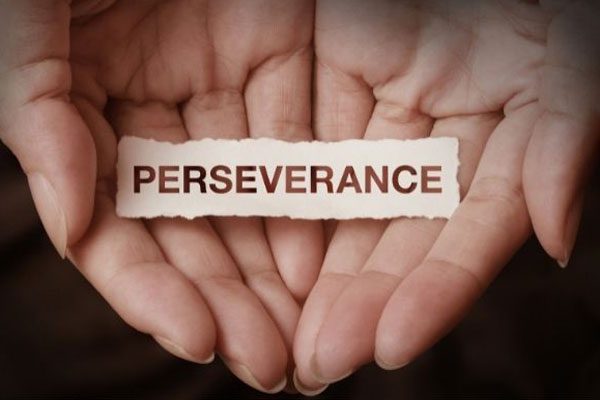
Investing strategies: The secret to investing is perseverance. So cut out the negativity, cut out the noise, focus on your path, stay persistent, and success will come to you.
I’m a big fan of rentals and a lot of people are not going to like this because they don’t understand it. I’m a big fan of the Section 8 Program. All my rentals are Section 8. To summarize in a sentence, what it is designed for is for these single women that have multiple kids. The program was designed to pay their rent. They go to college, get a degree and get a job. The government takes a piece of their paycheck and matches it and they get an FHA house. They get guaranteed to buy a home at the end of the program.
There are women in the Section 8 Program, which is government-subsidized housing, that is using it properly. There are lifers that their whole life, the mom, dad and their kids all live on government subsidy for life. I don’t rent to people like that but I rent to the ones that are in the program going to college. When they are done, they buy a house. What better thing than to help a single mom with multiple children get out of poverty and get their family out of poverty.
During all of COVID, when people weren’t paying rent, Section 8 paid that the first of the month was an automatic deposit. I never missed a rent payment. I’m not being like, “I don’t know those people.” If you understand it, it’s a great way to help people. We’re mostly helping women. In all my twenty years, I only had one male tenant. They were all women. I’m a big fan of rentals that way because if there’s ever another rental moratorium and people don’t have to pay rent, landlords go bankrupt because they can’t make their payments and then I’m huge on subject tos.
The quick version is a homeowner is in distress. They don’t know what they want. They want to walk away at this point. They don’t know what to do. They deed the house to us. Now, we own the property. We can rent it out or owner-finance it to somebody else. We’re there on the mortgage. We’re on the title and ownership side. They deed the house through us. We take it subject to the existing mortgage and then we turn around.
I personally owner-financed mine back out. I do owner refinancing, which you and I are going to be talking about coming up soon. In owner financing, that is the person that wants home ownership again but maybe they can’t qualify for a bank loan because they had a blip like COVID or a health issue. The bank says, “I can’t give you money.” I look at their credit and I’m like, “You had a blip and you paid. You deserve a chance.” I give people a chance for homeownership again. When I think about it, I’m trying to help everybody. Every single math that I do is to help somebody to get back on their feet.
Your mask becomes your message.
Is subject to legal in all states in the United States?
It is. The number one question when you tell something about subject tos is they go, “What about the due-on-sale clause?” Everybody says that. In my twenty years and my hundreds of subject tos, I have done close to 500 subject tos. No bank has ever said, “You’re making the mortgage payments on time. They were not on time and now they are. I want the house back.” It doesn’t happen like that.
The thing is, investors are like, “I heard about this subject to. The bank could take the house from you,” but it doesn’t happen. The homeowners have not been making payments for maybe a year and all of a sudden, those payments are coming in every time. The bank only cares about the money. They don’t care where it comes from. I have never even known of an investor to have a bank called a due-on-sale clause.
The homeowners deed the house to me. My name is on the deed. They are on the mortgage. At some point, you want to refinance them off. I sell the house to somebody else and help them fix their credit. In a few years’ time, they can refinance the house and own it completely by themselves. This other homeowner that is always on time with payments, all of a sudden, their credit got better and I made money in the meantime. On an average subject to house that appears to have no equity, it is not uncommon to make $50,000. Subject tos are a lot of money.
I have heard a lot about subject to myself. I had a couple of people on the show that have talked about subject to. I’m excited because I have been trying to get some of them back. Let’s talk about this again. This is the thing. We are all out there educating and we’re doing the business. I don’t deal with anybody who is not in it because they need to know what’s going on in the current market. Many of my contacts were like, “We’re doing the thing. We’re not teaching.” I’m glad that we’re getting to talk about this.
What I want to do is talk about a webinar that Dwan and I are going to do. This is funny because we didn’t decide on this before we got online and then I got so excited. I was like, “Let’s do a webinar.” First of all, ladies, here are a couple of things that you need to know. Dwan and I are doing a webinar on January 6th, 2022, at 5:00 PM Pacific time. To get more information, go to BlissfulInvestor.com/dwan. Dwan, tell us about what you’re going to cover in the webinar.
I get so excited when I can do a subject to webinar because a lot of people don’t understand it. When you understand it, it is one of the greatest ways to make money. You’re helping the original homeowner restore their credit and you’re helping the new person be able to own a home again. What I’m going to teach is I’m going to show a couple of ways to find deals because you have to find a deal.
I’m going to show people an actual case study, how I found the house, what they owed, what their interest rate was, what their payment was, how we structured and owner financing. I’m going to show exactly how to do that owner financing. I also have a five-year guide to show you. One a month, I’ll say, “You make this bunch per month. In year two, you add. Over the course of five years, you can make about $1.2 million doing one little tiny deal a month, which is easy to do.”
I’m going to show people how to become millionaires. It’s a perfect formula and it works 100% of the time. I have done close to 500 of them and they have all been amazing. I love the homeowner and the tenant. I’m happy to structure this deal. It’s not even hard to do. It’s a matter of having the right paperwork and knowing how to structure the deal so that everything is above board and legal and somebody won’t come back and say, “I didn’t understand.” Everybody gets it. I’m excited to do a webinar with you. I feel so honored.
Ladies, Dwan tries to keep her separate webinar to an hour but we can’t stop talking to each other. Allow 90 minutes and then we’ll do Q&A.
I try to keep it to 1 hour and 15 minutes because I know people are busy but it is a great topic. I honestly believe that creative financing will be the powerhouse of 2022. I’ll even send a couple of little videos out with some, “I’m going to teach you this and this,” so they can get excited about all the things that they are going to learn.
Ladies, if you’re not on my list yet and would like to get reminders, please make sure that you go to BlissfulInvestor.com. Sign up at the very top. There’s an opt-in for my download, which is my favorite strategy. You can opt into that and then you get onto my list. In that way, you’ll get updates on when these things are happening. Go there and sign up for the opt-in so that you can get the reminders too.
We’re going to start everyone off with such a bang. They are going to be like, “I cannot believe that there are these many deals and so much stuff out there. This is the best January ever.”
Dwan, we need to get moving over to EXTRA. We have got three rapid-fire questions before we move to the next show. Before we do that, I do want to let the ladies know what we’re talking about in EXTRA. We’re talking quite a lot about how women treat women. As we’re moving into 2022, there’s so much that has changed in our worlds and lives. One of the things that I would like to see change and I’m already seeing it is how women lift each other up. I find that successful women, we have already learned that it’s a necessity and women have to move towards that.

Investing strategies: You have to put self-care and make it a priority because really trying to run a successful business is difficult. It’s mentally challenging. If you’re not up for it, it’s draining and not fun.
I remember a friend of mine. Her name is Leeza Gibbons. She said to me once, “Girls compete. Women collaborate.” Dwan and I were having this phenomenal conversation about women and how we treat each other and how we each see things. It might give you a little bit of perspective on your own life and who you’re hanging out with and help you to start engaging with people that will be more uplifting and you’ll also be an uplifter for them. We’re going to be talking about that in EXTRA. Stay tuned for that. Dwan, give us one super tip on getting started in real estate investing.
To get started, you need to find someone that you feel like you’re on the same moral compass with them and maybe you learn and listen and not try to wing out as I did. I was a trial and error for a decade. Go in with some knowledge but pay attention to who you listen to and make sure they are a real estate investor, not a marketer. Shiny objects don’t make you any money.
Tell us one strategy for being successful as a real estate investor.
Honestly, it’s perseverance. I started many years ago and there were very few women in the industry and hardly any women teaching, for sure. If I had let all the people, naysayers and voices that I heard around me affect me, I would never have stayed true to the path. Cut out the negativity and noise. Focus on your path, stay persistent and success will come to you.
What would you say is one daily practice that you do that contributes to your personal success?
It’s probably not even a success practice. When I get up in the morning, I take care of myself first. I drink my water, take my collagen, eat and do all those things to take care of myself. Whereas I used to open my eyes, grab my phone and get on it. What happens is the day gets away from you. It’s noon, you haven’t even eaten yet and you’re starving. I wake up and in the first two hours of the day, I only take care of myself. Some people go, “It’s selfish to spend so much time on yourself.” If you don’t take care of yourself, you can’t take care and help others.
I learned I got to take care of myself to help everybody else. Women feel guilty about that because they got to get the kids to school and make breakfast. They don’t feel like they have time to take care of themselves especially women. We need to realize that if we don’t take care of ourselves, we can’t take care of everybody else. I faithfully, every morning, do my routines before anything happens.
I don’t know if you have noticed this, ladies. A lot of successful people say this.
For the record, I’m not that person that says, “Get up at 5:00 AM and do all this stuff.” Every person I have interviewed is like, “I get up at 4:00 or 5:00.” I’m like, “I wake up at 7:30.” I don’t even set the alarm. I woke up at 8:30. I was like, “I needed the extra sleep.” I’m not like, “Get up at 5:00 AM, be the early bird and get the worm.” I’m like, “If that’s the case, don’t be the worm.” Somewhere along the way, you have to put self-care and make it a priority because trying to run a successful business is difficult. It’s mentally and physically challenging. It’s exciting but if you’re not up for it, it’s draining and dragging and it’s not fun.
Thank you so much for all that you have offered on this portion of the show, Dwan. This has been so much fun.
I appreciate you having me on, Moneeka. I have looked forward to this for months. I’m so excited to be on talking to you and all your successful women.
Ladies, we got more. We’re going to be talking about uplifting other women in EXTRA. If you are subscribed to EXTRA, stay tuned. There’s more to come. If you are not, please subscribe at RealEstateInvestingForWomenEXTRA.com. You get the first seven days for free. Check it out and then you can stay subscribed or not. For those of you that are leaving Dwan and I, thank you so much for joining us. You know how much I appreciate you. I hope you have a lovely week. I will talk to you soon. Take care.
Important Links
- Investor’s Edge University
- Short-Sale Pre-Foreclosure Investing
- How to Sell a House When It’s Worth Less Than the Mortgage
- SuccessOnomics
- Show – Moneeka Sawyer – Inside The Minds of Today’s Millionaires
- BlissfulInvestor.com/Dwan
- RealEstateInvestingForWomenEXTRA.com
About Dwan Bent-Twyford
 Dwan is known as the “Queen of Short Sales”® and is considered to be the Nation’s #1 Expert on Short Sales & Foreclosures. She has written two best sellers, “Short Sale Pre-Foreclosure Investing” & “How to Sell a House When It’s Worth Less Than the Mortgage”. She is highly sought after and has been featured on Fox and Friends, MSNBC, Naomi’s Good Morning, Colorado and Company, and many other TV, radio, and print medias.
Dwan is known as the “Queen of Short Sales”® and is considered to be the Nation’s #1 Expert on Short Sales & Foreclosures. She has written two best sellers, “Short Sale Pre-Foreclosure Investing” & “How to Sell a House When It’s Worth Less Than the Mortgage”. She is highly sought after and has been featured on Fox and Friends, MSNBC, Naomi’s Good Morning, Colorado and Company, and many other TV, radio, and print medias.
In addition to being the Nation’s #1 real estate investing expert, she is a Christian, mother, wife, financial counselor for her church, and a corporate sponsor of Orrin Hudson’s “Be Someone” nonprofit organization – a program designed to keep kids off the streets by teaching them to play chess.
Her goal never changes – to make a difference in the lives of others! God Bless…
Love the show? Subscribe, rate, review, and share!
______________________________________
To listen to the EXTRA portion of this show go to RealEstateInvestingForWomenExtra.com
To see this program in video:
Search on Roku for Real Estate Investing 4 Women or go to this link: https://blissfulinvestor.com/biroku
On YouTube go to Real Estate Investing for Women
Moneeka Sawyer is often described as one of the most blissful people you will ever meet. She has been investing in Real Estate for over 20 years, so has been through all the different cycles of the market. Still, she has turned $10,000 into over $5,000,000, working only 5-10 hours per MONTH with very little stress.
While building her multi-million dollar business, she has traveled to over 55 countries, dances every single day, supports causes that are important to her, and spends lots of time with her husband of over 20 years.
She is the international best-selling author of the multiple award-winning books “Choose Bliss: The Power and Practice of Joy and Contentment” and “Real Estate Investing for Women: Expert Conversations to Increase Wealth and Happiness the Blissful Way.”
Moneeka has been featured on stages including Carnegie Hall and Nasdaq, radio, podcasts such as Achieve Your Goals with Hal Elrod, and TV stations including ABC, CBS, FOX, and the CW, impacting over 150 million people.
Mother’s Day Edition – The Impact Of Family On My Business And Success With Reed Goossens – Real Estate Women
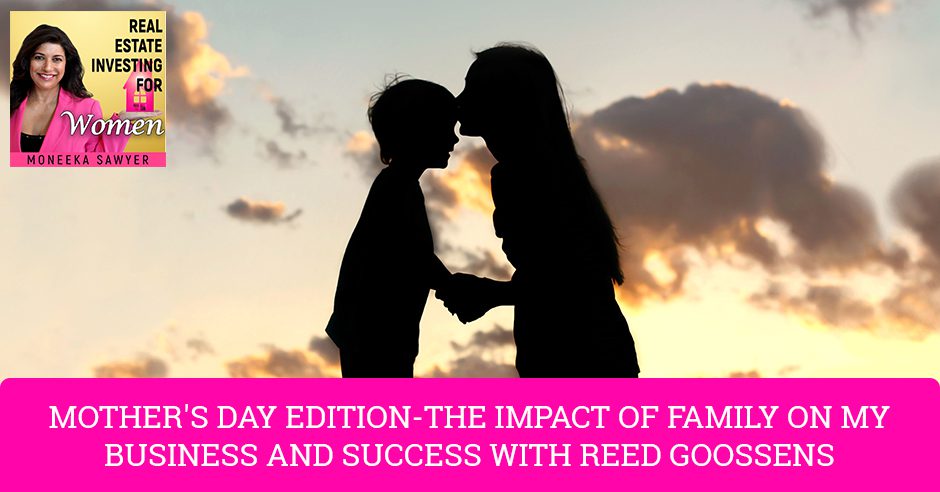
Many see investing as a male dominating world but for Moneeka Sawyer, a real estate investor and author of Choose Bliss: The Power and Practice of Joy and Contentment, it is an industry where real estate women like her can be influential as well. She joins Reed Goossens as she shares how her experience recovering from an accident and her family have a great impact on her business’ success throughout the years. Moneeka also wants to use this opportunity to empower women in the industry and show the world what they got.
—
Listen to the podcast here
Mother’s Day Edition – The Impact Of Family On My Business And Success With Reed Goossens – Real Estate Women
Real Estate Investing For Women
Ladies, I hope you had an amazing Mother’s Day weekend. I was trying to think of what I could do to honor Mother’s Day because I feel like it’s a very special holiday. I always want to honor our moms who supported us to become the women that we are now. I was on Reed Goossens‘ show and he did the most amazing interview, where he brought out so much about my family that hasn’t been shared. Since I think of moms as the core of the family, I thought of featuring a show about family, what it means to me and how it has impacted my life. Hopefully, it’s inspirational and helpful to you also. Enjoy the show.
—
I have the pleasure of speaking with Moneeka Sawyer. She is a lifestyle-focused real estate investor with an emphasis on helping more women succeed in the real estate industry. Moneeka has been investing for many years and she has truly created a life-by-design business, where she only spends between 5 to 10 hours a week working on her business and helping inspire other people to be more successful in real estate. She’s also the bestselling author of the book, Choose Bliss: The Power and Practice of Joy and Contentment, which was honored at the very prestigious Women of Impact Quill Award. I’m pumped and excited to have her on the show to share her incredible experience and her insight and knowledge. Moneeka, welcome to the show. How are you doing?
I’m doing great. Thank you so much for having me, Reed. I have to say one correction that’s worth mentioning. It’s 5 to 10 hours a month.
I must have skim-read that part.
That’s what people assume and that’s why I like to point it out. It’s amazing what’s possible. We can do 5 to 10 hours a week. We could also do 5 to 10 hours a month. It’s what’s good for you.
Tell us about more of your upbringing and how you value a dollar through your childhood. That’s an important step to start with to craft the story around what you created.
My story begins with my parents. My parents were immigrants. They came to the country with $200 in their pocket and a dream of building a life that was amazing for their children. They had heard that the golden ticket to wealth in the United States was to invest in real estate. When they got here, they immediately started saving their nickels and dimes. My mom is an MD, but she couldn’t work as a doctor here. She would sew the curtains for her house or the pillows for her sofa so she could save all those nickels and dimes but still have this beautiful home that she would expect for herself as a doctor, and then I was born. Their hearts were filled with love, joy and excitement for this new child. They’ve invested in their very first real estate investment project. It was land. They stayed focused on that their whole life and fast forward many years, they paid for my college education through real estate.
I grew up watching that whole thing. It was a topic of conversation. This is an interesting thing that happens in Indian families. Not all Indian families, but many. We do have a very open conversation about money. I got to hear about the stresses that my parents were going through, whether my mom needed to go through residency again to be able to practice here or my dad being discriminated against at work. They came here in 1967 and we lived in Ohio. It was a very white community. People were still very kind and they still had great jobs, but there were also people who were not kind who discriminated against them. I heard all of this stuff.
Bliss is a deep sense of joy, contentment, and that confidence that no matter what happens in life, you can handle it. Click To Tweet
One of the things that impressed upon me was that it was important to me to be able to make money myself and not be dependent on anybody else, which is an interesting dichotomy because Indian women wanted me to have an arranged marriage. A man was supposed to be able to take care of me, but then on the other side, I needed to be fully independent. Talk about mixed messages. What was interesting is my mom and dad would not let me work. I was a girl. I needed to study. I needed to go to college. I needed to get married, but I also needed to be a professional so I could support my husband to make a lot of money.
As I was growing up, I wasn’t allowed to work. I wanted to. I would read Entrepreneur Magazine. I don’t know if anybody remembers the old Entrepreneur Magazine where they had all these binders of businesses that you could start. You can pay $99 and you would get this business startup pack for anything, a wedding planner or a banker. There are all these things. I would buy them. I was so hungry, but I wasn’t allowed to work. I wasn’t allowed to go out there. My very first job was at Jack in the Box when I was seventeen and I bagged. I felt like I was dating because that was another thing I was not allowed to do. I was going to have an arranged marriage. I would sneak out so I could go work. It was so naughty. I had developed an appreciation for money. Dad had started to talk to me about real estate when I was very young. I got my very first allowance, which was very little. Even in those days, he taught me about budgeting. I opened a checking account and started writing checks. I was very fortunate that way. He taught me a lot about the practicality of money and the role that it plays in our life.
Thank you for being vulnerable and honest. That’s probably the most intriguing dollar story I’ve heard. I get so many people on the show like, “I have mowed lawns.” I was like, “Don’t say mowed lawns. Say something better.” You’ve had the opposite of having to try and fit in as a kid and probably see your other friends out working at McDonald’s or wherever it is. They had money to buy dresses and go out on the weekends and be teenagers. You had the other traditional side of your upbringing and your heritage, which is important. Not to pull you that, but it’s what your values that your parents wanted to instill in you. It’s very humorous that your parents were like, “You got to make money and land on your own two feet, but you can’t. We want to give you an arranged marriage.” What were the conversations around the dinner table when you wanted to break away from being that first-generation American and break away from the norms that probably your parents were brought up with back in India?
It was hard. I’ll preface this by saying, I am absolutely crazy about my parents. They’re the two most beautiful people on the planet. I am so fortunate to have had them guiding me through my journey in life, but growing up was hard. It was hard in our environment because I’m not white and we grew up in very white areas because of my parents’ jobs. Out in the world, it was tough for me. At home, that was my sanctuary and my parents were so scared. They used to watch General Hospital. They saw all the drama on television. Because they hadn’t grown up in this country, they were scared that horrible things were going to happen to their girls.
Choose Bliss: The Power and Practice of Joy and Contentment
They held on so tight and were so protective. Very young, I became very secretive. I would have to sneak out to go do my job. I sneaked out for everything. I didn’t talk to them about anything because I was afraid that they would be so afraid, then they would hold me up in the tower of safety in our home and I couldn’t do anything. I couldn’t go out with friends. I couldn’t work. I was in all honors classes and my honors classes started at 7:00 in the morning. My mom and dad were afraid to let me go to honors classes because “Who goes to school at 7:00 in the morning?” I did. I wanted to get into a good university. You can see this misunderstanding of what life is like.
Indians do this too and a lot of cultures do this, yelling and screaming on top of our lungs, “I love you, but you are so wrong.” I don’t think it was dysfunctional. It was truly authentic and honest because we got to the bottom of stuff and there was never a dearth of love for us. No matter how angry we got, we were a unit and we loved each other like crazy. We always had that as children growing up. Even now, I never felt that there is a moment that there is no unconditional love in my life and that’s because of them.
I will also reflect back to you that I came from a very similar family, not necessarily traditional. We live in Australia. It was Aussies being Aussies. It’s that whole unconditional love and bringing in. I even remember bringing my wife and she came from a broken family, and how intense it can be sometimes. She felt outside like, “I didn’t have this growing up. You’re very lucky, not many people have this.” I was very similar to you that there was that unconditional love. Everything that they thought came from a position of love and they said, “I want to protect the girls and they can’t do this, that or the other,” but it probably made you very cheeky in terms of going out and escaping, and having to do things on your own ways to feel like you had a life.
I’m very independent, but it was also interesting. I went to UC Berkeley and I had a lot of my other Indian girlfriends who had had a similar experience. They went to UC Berkeley and we were all like, “We get to hang out at school.” What was funny was that I went out there and I was like, “I’m here to learn. I wanted to start a business my entire life. I’m going to go to business school.” For UC Berkeley, you have to re-apply for business school. I was like, head down, “I’m going to make this happen. My life is my life. I’m in control. I don’t have to sneak around to work or study.” I was so excited. All my friends got into drugs and alcohol and not in a bad way. They were all still smart. It’s just college kids being college kids, but they were all into the party. All my old childhood friendships fell apart because my version of freedom was creating the life of my dreams and their version of freedom was trying everything possible under the sun. It’s a very different perspective. I’m tenacious. I can be crazy, but it was all very focused on, “There is a life that I want and I’m going to go get it.”
Many people do it and myself included. When that freedom does come when you go to university, you do tend to rip the lid off. That’s not necessarily a bad thing because you then test your boundaries and you test where you need to pull your socks up, “You have stuff up. You’ve partied too hard over here. Now, you need to pull your socks up because you’re grades are failing.” I can sympathize with your friends but also with you in terms of having that freedom and understanding, “There’s so much more control of my life.” Even when I went to high school with the deputy principal’s son, I was very goody two shoes and not doing anything when I was a teenager.
When going to university, I started like, “Girls and alcohol. Holy crap,” but then realizing like I’m still very studious and my grades were suffering. You had to make that choice in life. That’s interesting when you were at university back to the story of the girlfriends from Ohio, going to UC Berkeley and then having different perspectives. You do eventually drifted away because of different priorities in life. That’s okay. That’s the point of going to university. The point of figuring yourself out is for all these things to happen. I love that story.
It’s funny because sometimes I think I robbed myself of all that fun. I was so focused on what I wanted and I didn’t slow down and notice that there was fun out there. I could go party. I could have it all. It didn’t have to be mutually exclusive. As I’ve gotten older, I’ve relaxed quite a lot. I’m not quite that focusing crazy.
Don’t wish away those moments that you’re going to miss so much when they’re gone. Don’t wish away your life. Enjoy every single moment. Click To Tweet
It’s a good segue into the bliss. What is bliss? Part of what I’m hearing from you at a young age is what you thought you had to do in order to be successful. A lot of entrepreneurs that I interview on the show do get the blinkers on and are just crazy. They take certain priorities that are business over health, life or love, and things start to whine. They realize that they don’t have a life. The purpose of all that we do, whether it be at university or in creating something from nothing in businesses. It is to enjoy the journey because it’s not ultimately the mountain top we scale, but it’s you only live one life. Enjoy it now. We have this social media anxiety. We always got to be comparing ourselves and “I always got to have something more to do.” It’s such an interesting bliss that I want to talk about with you because I know you’ve got a lot to give on that piece.
We only get to the mountain top for a little while and then we look around and we got to go back down. If you don’t enjoy the journey, then all you get is that ten minutes on the mountain and then you’re climbing another mountain. Bliss is a deep sense of joy, contentment, and that confidence that no matter what happens in life, you can handle it. It’s about emotional mastery and emotional resilience. That’s how I’m defining bliss. My journey or my passion is to help real estate investors, women, business owners, people in general, to let you enjoy that journey. Let me tell you a story. Your story is perfect, but I’m going to tell you another one.
I was in Iceland and we wanted to go see a glacier. It was a two-and-a-half-hour drive. We decided to do it. We were driving along and there are two ways that we can approach this. We can drive as fast as possible and make the two-and-a-half-hour drive two hours, or we can drive below the speed limit. We’re on vacation. Everybody is like, “Really?” We’re driving and looking around and enjoying the scenery, the terrain and the way that it changes. Here, it’s plants and waterfalls. Here, it’s lava. We’re getting out, taking pictures and stopping for lunch. The experience of going to that glacier was completely different by doing it that way. We had this beautiful journey that ended up taking us three hours. We got to the glacier. We hung out there for two hours. It was gorgeous and worth the journey. We drove back and enjoyed the drive back too. We went to dinner. Our next goal was to find a hotel and go to dinner.
That’s a good metaphor for life. Are you looking around? Are you having good meals? Is it okay that you take longer so that you can enjoy that journey? When you get to that goal, as fantastic as it is, being at that goal only lasts for a little while and then there’s another journey to another goal. Do you want to live your life jumping to ten minutes of bliss or do you want to enjoy the entire journey so you can enjoy all of it? That’s what I want people to get is whether it’s in real estate, whether it’s with your families, people are like, “I can’t wait until my kids go to kindergarten.” Don’t wish away those moments that you’re going to miss so much when they’re gone. Don’t wish away your life. Enjoy every single moment of it.
Have there been any losses in your life to understand that mindset shift? You do slow down because you clearly are the person who is hungry, who wants to hustle, who wants to prove to their parents that they can go up, do it and stand on their own two feet. Has anything happened in your life? You can say no, getting older and all that stuff. I know personally, I lost my mom. I’ve got a story for you that I wish I was at the life I live now before so I can spend more time with her. I live in America. She’s in Australia and I got home three days before she passed. I did a whole episode on priorities versus goals and how that we can sometimes shift them. Was there anything that shifted along your journey in the way that made you realize, “This is not a sprint. Let’s take the long journey. Let’s do lunch. Let’s enjoy the scenic route?”

Real Estate Women: Find ways to make the hustle livable so that you don’t burn out. You don’t want to get to the other side and be completely burnt out.
I have been very fortunate I have not experienced loss yet. We all do and I know that it’s coming. As I mentioned before, I’m madly in love with my parents. I want lots of time with them and with my sisters and nephew. We’re very family-oriented. That’s been ingrained in me, but the hustle didn’t stop. It transformed. When I was in a horrible car accident, I lost my legs. I was a professional dancer. That was the one thing I was allowed to do. Since I was five years old, I was dancing. I had a world reputation. I danced all over the world. When I was 21, I was in a horrible car accident that was not my fault. Someone hit me and my hips got dislocated, my back got thrown out and I became a cripple for a couple of years. I should have been into a chair but that’s another story.
I went through a huge depression during that time because everything about my life suddenly shifted. I just had gotten out of college. My new job disappeared. My fiancé left me because I wasn’t the same person anymore. I was a dancer dancing six hours a day. Now, I had no exercise. The chemistry in your body changes so fast. I gained so much weight, which aggravated a lot of the problems. I went through this horrible time. Fortunately, somehow I ended up getting married. My husband is a dream guy, but even marriage didn’t fix it, even having the money and taking care of. This is one of the things that we do as people. When things go wrong, we think, “If I have the love of my life, everything will be better. They’ll take care of it. They’ll save me,” whether it’s a man or a woman. I had that mentality from my upbringing. I got married to this beautiful man, but he didn’t fix it. He couldn’t. Nobody can fix your life. Only you can fix your life.
I remember I had a moment when I had gone through a huge depression. The pain wasn’t going away physically. My legs still weren’t working quite right. It had been 5 or 6 years. My marriage wasn’t fixing all the problems. I remember one day, I was lying in bed. I had been in bed for a week. I had been depressed. I had been sleeping. I heard my mom’s voice in my head. She said, “Moneeka, get out of bed and go get some air. You’ll feel better.” I had the covers over my head. I pushed them off of my head and swung my legs around to get out of bed to go for a walk. As I tried to stand on my legs, I fell to the ground because they were so weak, they couldn’t hold me. At that moment, I thought, “I can’t do this anymore.” I prayed and said to God, “Either have mercy on me and bring me home or teach me how to live.”
A girlfriend called about an hour later, who I hadn’t heard from for years. She turned me on to a coach and this coach taught me how to live. The very first thing that he talked to me about and I do this in all of my coursework is, “What are your values? Design your life not based on anybody’s expectations, not even your own because your own have often been given to you, but create a life based on those values and what’s important to you.” What was important to me was my relationships. No matter how much I wanted to hustle, how important a business was to me, my highest value was my relationships. That was what slowed me down and made me realize, “I can’t spend 80 hours a week. I have the capacity, but I can’t do it because my life feels bad.”
What do you say to those people who are in the hustle right now? They are trying to make ends meet. They are putting one foot in front of the other. They are in the grind right now. For you and I, we’ve both been in that grind. We’ve both been in that 80, 90, 100 hours a week. For me, personally, working a W2 job, trying to get out and become financially free in these situations, and all sort of stuff. What do you say to those people who are in that right now? How do you give confidence that it’s going to be okay?
The very first thing that I will talk to them about is, “What are their values? Why are they doing that hustle? What are the values that you’re trying to satisfy? What’s the goal that you’re trying to get to?” Find ways to make that hustle livable because, for some of us, it’s necessary. It was necessary for me. It was necessary for you. Find ways to make that livable so that you don’t burn out. You don’t want to get to the other side either and be completely burnt out. Set milestones for yourself. You’re hustling. You’re working an 80-hour week. When does that stop for you? Is it a year? When are you going to re-evaluate? The other thing is you may be hustling. You may not be hustling towards your goal. Things may not be working.
For me, if you’re in the hustle and you’re working that hard, every six months, re-evaluate, “Is this hustle going to get me where I want to go?” That way, you can pivot or refocus if you need to. Keep going. You want to keep re-evaluating and then get to that place where it doesn’t become a habit because hustling is adrenaline-filled. It can be exciting on many levels. It can become a habit and a distraction to what you want in your life. Those are the sorts of things I would tell them.
It’s so important to keep a level mindset in terms of running your own race because so many people compare themselves to other people. Back to your analogy of going up in Iceland, going up to that glacier, taking the long journey and it’s your journey. That’s okay that it’s your journey. It comes a lot from being self-aware. You have to take care of yourself mentally to allow yourself the mental freedom to not compare yourself constantly to other people because that is what we were. We’re always in this constant struggle of like, “So-and-so is doing this and I’m in my job. I haven’t broken free. I haven’t got financially free.”
No one else can fix your life. Only you can. Click To Tweet
It’s okay that you’re in that position. Give yourself some permission to allow yourself to be okay in that situation. It will change and know it will change over time. I think people forget that because they’re only looking at the 4×4 inches box. They’re not looking at the big picture. Sometimes you do have to take that time to make sure that you’re checking in, recalibrating if need be, and understanding that this needs to be sustainable growth in a hustle, not necessarily a burning out type of growth.
My youngest sister had a little boy. He’s the dream of everybody in the family. He’s adorable. His mom said something about his eye was a little bit off. They got it fixed or whatever. My other sister said, “Everybody should realize that he’s perfect the way he is as long as we don’t compare to other people.” It’s true. That was so profound. We’re all in our perfect place and we are perfect as long as we don’t succumb to comparing ourselves to others. Our life is ours. You may not feel like everything is going perfect, but trust that you are perfectly where you are and that you will get to where you want to go. It doesn’t matter what anybody else is doing.
I’m going to stuff up the quote, but I don’t know who the author was. It talks about LA is three hours behind New York, yet it’s three hours in front of Hawaii. It’s not that Hawaii is late or LA or New York is early. It’s their own time. You’re not late. You’re not early. You’re just on time because you’re running your own race. It compares the time in the world and it’s so true. You’re not late. You’re not early. You’re on time and it’s your time. It’s your journey and that’s okay. Tell me more about what you do in terms of how you’re giving back to the wider community. I bet you’ve got a great book that has got an incredible award. You’ve got your show going on and you’ve also got your real estate investment business. Talk about those three facets of what makes you tick now in the world.
I have a real estate show called Real Estate Investing for Women, where we focus on mindset, heartset, emotional mastery, money smarts and real estate strategy. It’s a very holistic approach to creating a blissful real estate business and creating wealth that way. That’s my big focus. I invest in executive properties. If anybody ever wanted to know what that is, come listen to my show. I have very streamlined strategies on how to keep everything blissful. I have that going on. One of the big bliss things for me is I give back to the community in teaching right through my show. I also am very involved in a school for the poor in India. That’s where a lot of my money goes. This is one of the things that we think about like, “Why are we building wealth? What does it allow us to do?” For me, it gives me the time freedom and financial freedom to do things in the bigger world. I can run my show. I can help children in India. I can spend more time with my family and my nephew or my friends. Those are the sorts of things that I’m doing.
My real estate investing business could retire me now. I have the time freedom that I have always wanted. The show is my big thing. I do have a couple of other books. If you look up Moneeka Sawyer on Amazon, you’ll find several books under my name. I released another one called Real Estate Investing for Women and I have a fun one that’s called Your Amazing Itty Bitty Blissful Real Estate Investing Book. It’s 40 pages. That’s also available on Amazon. Those were my three big things. I built my real estate business in about 25 years. I put together a report of how did I do that so that I could retire. I started with $10,000 and now I can retire. I’ve put together that report. That’s available to your audience for free if they would like it at BlissfulInvestor.com.
You’ve got a whole brand in and around educating women. Why is there a lack of women in the real estate space? I was even looking back at my shows. I’ve only had maybe less than a dozen women over 220 episodes.
It’s interesting because real estate agents, there are a ton of women, but as far as being investors, I don’t know. Maybe we haven’t been educated right. I’m not sure what’s going on there. It’s so frustrating to me, which is why I am focused on women. The other thing that’s very interesting is that we see investing as a male world and it can be intimidating. What women don’t realize is that we are brought up in America. We are brought up in a male-dominant world. We are forced to learn how to succeed in that environment. We learn the skills. We learn the way to think. We learn all of those male-dominant ways of doing business.
We also inherently by default have the feminine ways of doing business. We’re intuitive. We can see the bigger picture. We can multitask. Men can multitask too. It’s just done differently. I just want to clarify that. We bring different skills to the world and the business world. As women, we have the benefit of having male skills as well as female skills, but we don’t value our female skills. If you marry those two together, we are amazing investors. We have an understanding that most men don’t have access to unless they plug into the other side. We’re amazing investors and I want to support that.
I have a hard time finding women speakers for my show for that same reason. It’s time for us to step into the leadership of our own lives and create the financial freedom that we can have and deserve. Everybody deserves that. I don’t know either because I was brought up in a household where I was taught all about money. I feel very fortunate. I didn’t realize how many women are like, “I don’t get it. I don’t know how to pursue that.” A lot of education is by men with the language that feels uncomfortable.
I think of this historically where the man is going out to be the breadwinner and the female is at home taking care of the kids and, “Don’t you worry yourself with the finances. I’ve got it sorted.” That’s completely shifting and hopefully, it continues to shift. You’re trying to put a megaphone up to the issue and enticing more people into the world of real estate, particularly female, a popular part of the population. It’s important because it’s empowering. The more people can be empowered to learn about something, particularly the female part of the population has not had the opportunities because of the way we’ve been brought up for many years. To want to take that stand and say, “I want to learn about something. I want to learn about this financial freedom. I want to learn about creating financial wealth for myself and my family because that’s the whole point, to give me time freedom to spend with my kids, to spend with my family, to grow as a human being.” You talked about feminine energy and that is important. We all have it in ourselves. It’s just an ability to tap into it in certain ways. You’re doing an incredible job of giving a megaphone.
The school that I support in India is a coed school. Because here’s the thing with empowering women. If a woman is fighting and screaming, “Pay attention. Respect me,” people are going to hear, but people don’t learn by words. We need the support of our entire community and that means our men. If men are not going to support the empowerment of women, it’s going to be a huge, long journey. As the men come on board, now we all are lifted up together. Every single one of you who is willing to be a voice as an ally of women’s empowerment, we need you and appreciate you. Your voice is important too.

Real Estate Women: We’re all in our perfect place and we are perfect as long as we don’t succumb to comparing ourselves to others. Our life is ours.
There are some weird statistics out there in the S&P 500. There are only less than fifteen women who are CEOs, yet more than 25 of those CEOs are called David. It takes all boats to rise. Everyone needs to be pulling in the right direction, not just the female community saying, “We want to do this.” It’s about also the other side of the coin, the male community saying yes and acknowledging and telling that community, “We’re seeing and hearing you. You have a place at the table and you should always have a place at the table.”
We all value that. Men are greatly improved and evolved by recognizing that also. Like I said, my husband is an incredible, beautiful human being and so much of that is he values me. He’s not just an incredible, beautiful human being to me, he’s also respected everywhere because he has a good understanding of what respect looks like for everybody.
I have one question before we dive into the top five investing tips. What are your plans for 2020 and beyond, both business and personally?
I’ve got a summit coming up, my very first summit. It’s online virtually. I was originally going to have it live in person and then I felt very limited by that. I want to be able to reach as many people as possible so making it virtual allowed me to do that. I’ve got that going on. I’m probably going to release a book because that’s what I do. I love being an author. Look me up as Moneeka Sawyer on Amazon to see what happens there. Everything in life is a surprise. I love the new surprises that I’m inspired to do. Honestly, I want to invest in one more property. My goal is to be able to retire in Silicon Valley. Right now, I could retire. I would have to move. I want to be able to retire here so my husband can continue to be supported in working because he loves being a software programmer and this is where the work is. I’m going to be buying a couple of more properties, probably changing my strategy from an equity strategy to a cashflow strategy. Those are some of the things that I’m learning about, growing in and excited about.
At the end of every show, we like to dive into the top five investing tips. What is the daily habit that you practice to keep you on track towards your goals?
I have a good morning routine and anytime I miss it, I feel out of sorts. It’s super simple. I can go through it in a couple of minutes. I wake up and my alarm goes off and I push snooze. Everybody says, “Don’t push snooze.” I always push snooze and that time between my two snoozes is when I do my gratitude practice. I have a very specific way that I do that. Anyways, I do my gratitude practice, get out of bed, get dressed and feed the dog. My husband and I go for a beautiful walk together with the dog and have some coffee together. We make some eye contact before we split between for our days. I come home and I do some mindset tools. It depends on what I’m into. On that day, maybe I read, watch a video on YouTube or recite something. I do some positive affirmation and then I sit down at my desk at 10:00. I get my exercise, meditation, affirmations and gratitude. I get it all.
It’s so important to keep that morning ritual sacred for yourself because it helps you start the day and get involved into the next 8, 9 or 10 hours, however long you work for. Who is the most influential person in your career to date?
It’s my dad.
In your business, there would have to be an influential tool. When I say tool, it could be software or it could be a physical tool like a phone or a person. What is the most influential tool in your business on a day-to-day basis?
Books.
Books you’re reading or you’re writing?

Real Estate Women: You may not feel like everything is going perfect, but trust that you are perfectly where you are and that you will get to where you want to go.
I would say I’m reading. I’m always reading something. That’s not necessarily part of my morning routine, but at lunchtime, I can’t help it. I love to read. At some point during the day, I will read something that moves me forward to what it is that I’m doing tomorrow and what I’m doing in my business. I would say my Kindle, specifically.
In one sentence, what has been the biggest failure in your career to date and what did you learn from that failure?
I bought this place that I live in, my dream home. I bought it in 2008 and within six months, it lost 50% of its value. I lost $500,000 in six months. What I learned is it’s so important to stay blissful because my whole life would have blown up. If I didn’t have the skills that I had, I would never be where I am now, but instead, I engaged my bliss strategies, held onto the property and kept my head. It turned around and turned into a good thing. The truth is stay blissful, manage your emotions, be resilient and have mastery. Be very intentional about how you’re living you’re life. When things go wrong, be intentional about how you solve those issues.
Moneeka, where can people reach you to continue the conversation if they want to be in your sphere and want to learn more about what you do?
Moneeka Sawyer is where you find me everywhere, @MoneekaSawyer on Facebook and Instagram. You can go to BlissfulInvestor.com to find out about my books, my programs and my podcast is called Real Estate Investing for Women. You can find that anywhere podcasts are.
I want to thank you for jumping on the show. I want to reflect on the things that I took away from the show. I think the number one thing that I took away from the show is that no one can fix your life, only you can. That’s so important in this world of, we want to blame other people for the situation we’re in and not taking control and not owning up to your shit and turning it around. Blaming your parents, your upbringing, your husband or the dog. We all get into that mindset, but it’s also making sure that you’re self-aware enough to take yourself out of it. Have your morning rituals that are going to keep you grounded and make sure you are in a blissful state to not be so reactive in the situation, and understand more what the long-term game is. Did I leave anything out?
No, that was beautiful. Thank you for that summary.
Thank you so much for jumping on the show. Enjoy the rest of your week and we’ll catch up very soon.
Thank you.
—
There you have it. It’s another cracking episode and jam-packed with some incredible advice from Moneeka Sawyer. Please make sure you check out all her stuff. She’s all over Facebook. She’s all over Instagram. She’s all over the Google webs in terms of making all her books on Amazon. Make sure you head over to BlissfulInvestor.com or check out her show, Real Estate Investing for Women on any way you podcast. I want to thank you all for taking some time out of your day to tune in to continue to grow your financial IQ because that’s what we’re all about here on this show. We’ll do it all again next episode. Be bold, be brave and remember, go give life a crack.
Important Links
- Reed Goossens
- Choose Bliss: The Power and Practice of Joy and Contentment
- Real Estate Investing for Women
- Your Amazing Itty Bitty Blissful Real Estate Investing Book
- BlissfulInvestor.com
- @MoneekaSawyer – Facebook
- Instagram – Moneeka Sawyer
Love the show? Subscribe, rate, review, and share!
Join the Real Estate Investing for Women Community today:
______________________________________
To listen to the EXTRA portion of this show go to RealEstateInvestingForWomenExtra.com
To see this program in video:
Search on Roku for Real Estate Investing 4 Women or go to this link: https://blissfulinvestor.com/biroku
On YouTube go to Real Estate Investing for Women
Moneeka Sawyer is often described as one of the most blissful people you will ever meet. She has been investing in Real Estate for over 20 years, so has been through all the different cycles of the market. Still, she has turned $10,000 into over $5,000,000, working only 5-10 hours per MONTH with very little stress.
While building her multi-million dollar business, she has traveled to over 55 countries, dances every single day, supports causes that are important to her, and spends lots of time with her husband of over 20 years.
She is the international best-selling author of the multiple award-winning books “Choose Bliss: The Power and Practice of Joy and Contentment” and “Real Estate Investing for Women: Expert Conversations to Increase Wealth and Happiness the Blissful Way.”
Moneeka has been featured on stages including Carnegie Hall and Nasdaq, radio, podcasts such as Achieve Your Goals with Hal Elrod, and TV stations including ABC, CBS, FOX, and the CW, impacting over 150 million people.
Grow Wealthy While Paying Taxes With Mark Willis
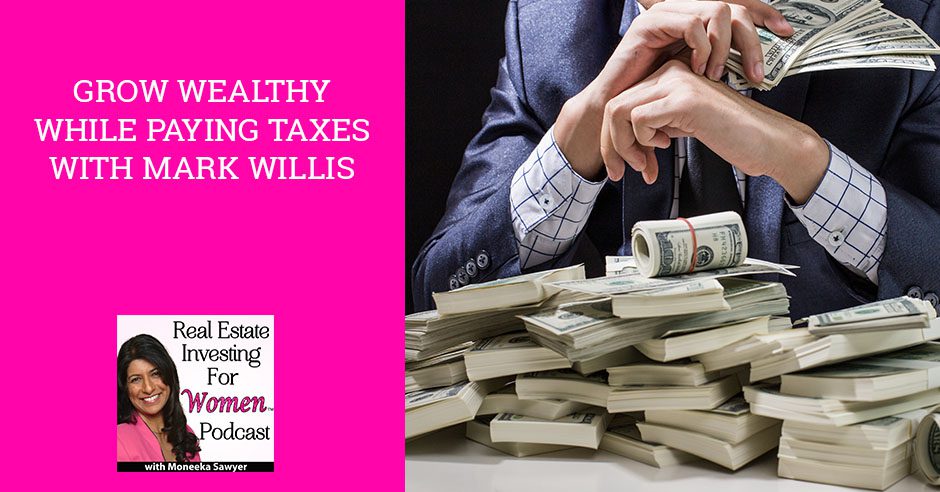
Would you rather pay taxes now while you are still earning or simply want to postpone it during your later years? If Mark Willis is to be asked, he believes that it is better to pay taxes as early as possible, giving you a chance to enjoy a tax-deferred retirement. The owner of Lake Growth Financial Services sits down with Moneeka Sawyer to discuss the benefits of addressing your tax problems before it builds up and becoming a huge life obstacle. Mark also presents the Overton Window concept, emphasizing the alternative ways to pay taxes that have nothing to do with 401(k)s or IRAs.
—
Listen to the podcast here
Grow Wealthy While Paying Taxes With Mark Willis
Real Estate Investing for Women
I am excited to welcome back to the show, Mark Willis. He has been on the show several times. He’s been on our summit. He was in my book. He’s been with me a while and I’m excited to bring him back to talk about taxes. For those of you who don’t remember who Mark is, let me go ahead and reintroduce him. Mark Willis is a man on a mission to help you think differently about banks, Wall Street and financial uncertainty. After graduating with six figures of student loan debt and discovering a way to turn his debt into real wealth, as he watched everybody else lose their retirement investments and home equity in 2008, he knew that he needed to find a sane way to meet his financial objectives and those of his clients. Mark is a certified financial planner and number one bestselling author and the owner of Lake Growth Financial Services, a financial firm in Chicago, Illinois. Mike, welcome back to the show. How are you?
I am glad to be with you. I am doing great. I can’t wait to get into everything we have to cover together.
When you started talking about building wealth while paying taxes, I was all in. Let’s start by talking about tax-deferred retirement plans because that’s what people normally think is a good way to save on taxes.

Tax-Deferred Retirement: Letting the tax problem build-up is oftentimes not a good idea.
I want to start with a story. Imagine you’re a farmer out in the middle of Nowheresville, Iowa or even more beautiful, California. I have nothing against Iowa, but California is awesome. Let’s say you’re a farmer and you’re up early in the morning, as you always are. You’re getting ready for your day. You’re pouring yourself a cup of coffee, there’s a knock at the door and you open the door. It’s an IRS agent of all people. You’re puzzled, but you welcome them in. You sit them down at your dinner table, you hand them a cup of coffee and you say, “What are you doing here?” The IRS agent looks you right in the eye and says, “Moneeka, we’re going to ask you one question and we’re going to treat you according to your answer in your taxes for the rest of your professional life.”
You say, “Okay.” They say, “Here’s the question, Ms. Moneeka, do you want to be taxed on the farming seed or your harvest?” You don’t even have to hesitate. You replied by saying, “Tax me on my seed. I want a tax-free harvest.” You know the power of compounding and multiplication. You’d rather be taxed on the seed. They make a few notes. He gets up to leave and he turns around as he’s walking out the door and he says, “I’m curious, you said the seed. Why are you doing it totally backward when it comes to your retirement plans?” That’s the story. The truth is most Americans are putting money into a tax-deferred system that goes against the grain. It goes against our intuition about taxes. I’ll hush right there, but I’m curious, does that story strike anything for you as we talk about it?
Absolutely. I’ve never heard that story before, but it is true and relevant. In our retirement programs, the money is a seed. Do you want to be taxed on the seeds that go in initially or on the harvest that is worth so much more later? I’ve never heard it that way and I love it.
If you think about it, the word tax-deferred would be everything from your 401(k)s, IRAs, 457 plans and 403(b) plans. At a lot of hospitals and nonprofits, they offer 403(b). They’re all tax-deferred retirement plans, which is a postponing of what’s due. What does the word postponed mean? What does the word defer mean? It means putting off until later. Taxes are about as fun as going to the dentist, in my opinion. If you want to defer a root canal, is that a good idea? It’s not a good idea to defer a root canal and similarly, letting the tax problem build-up is oftentimes not a good idea.
I don’t know everyone’s tax situation, but over the thousands of phone calls and Zoom calls I’ve had with clients over the past decade, having quick calls and long in-depth calls, evaluating people’s tax scenarios, we have pretty sophisticated tax software that we run for our clients, but we have brief calls with people too. We asked them the question, “What do you think as you look at the nation, as you look at your personal financial situation, is our tax going to be lower or higher in the future?” Moneeka, I can’t think of a single person who’s ever said other than, “Mark, I think taxes are going to go higher in this country over my lifetime.” I tend to agree with that. It’s not a matter of political left or political right. The math party says the taxes have to go up. It’s important to ask ourselves if taxes are going to be higher and we’ve put off the tax payment. Do you want to pay those extra taxes on the money or would you rather have a tax-free harvest? That’s the looming question every person has to ask, at least if you’re a tax-paying us citizen.
There’s also something else to consider that is relevant. We’ve been trained to think that we make a ton of money. We put a bunch of way. We have our kids. We have all these expenses that happen during our life, but then when we retire, we’re going to be living on our retirement income, which is going to be significantly less than what we’re making when we’re earning money. When we start pulling that money out, we’re going to be in a lower tax bracket. Whether the taxes go up or down, regardless, we’re going to be in a lower tax bracket. I want to ask you ladies, when you retire, after however many years you put in of hard work and bringing up your family, not getting to travel and making sacrifices.
Most Americans are putting money into a tax-deferred system that goes against the grain. Share on XHopefully, you haven’t done too much of that. Hopefully, you’ve been blissful, but whatever you’ve done, do you want to be living on less than what you’re making now? I say, “No.” My retirement is not going to happen until I can live my current lifestyle or better. I want to travel more. I want to be more with my parents. I want to afford a nicer house, even if it’s a little condo penthouse. Whatever it is, I want more than this lifestyle, not less. I’m not going to work all these years for less. If you think about that, you’re deferring all of this income. You’re going to be paying taxes at the current tax bracket or higher and on more as opposed to on less.
It’s so true, Moneeka. Even if taxes are only 1% higher than they are now, on a mathematical basis, it makes more sense to pay our taxes today. I’m not telling everyone to do that, but you’re so right. Anecdotally, I can’t think of any retirees that were even moderately successful in their investments, their savings or their real estate investing who are in a lower bracket. It’s an old-fashioned myth. We’ve been living in low brackets.
It’s a marketing strategy. In the earlier days, when a lot of this stuff was developed, people were getting pensions. They were able to live on Social Security because the cost of living hadn’t increased so much. There were some fixed income things that they could count on. The average man could count on being able to retire without having to invest and without having to be financially savvy. If that in fact is true, they aren’t going to be in a lower bracket. When you start talking about a tax-deferred retirement plan, you are in a lower bracket. That’s how this whole thing started. Now in the modern day where most of us don’t have pensions. We don’t believe we’re going to be able to live off of Social Security. We are investing. We are hoping to create a lifestyle for ourselves, a retirement that we deserve and have worked for. That’s a big difference. It started as marketing. It’s just not relevant anymore.
With regard to traditional retirement plans, I have nothing against them, I just think we’re using them for the wrong thing. When I was a little kid, my parents would get on me if I was using my toys in a way that it wasn’t designed. If I was throwing my Game Boy in the bathtub, that’s not going to end well. The same is true with our financial toys or vehicles or whatever you want to call them. Everything has a place. Nothing is wrong or bad. It’s a question of what do you truly want your money to do for you. If you want your money taxed in the future, that’s great. Let’s think about it this way. Let’s say that you had somehow $1 million in your 401(k) on the day you plan to retire. You’re a 401(k) millionaire, but some or a significant portion of that money is not yours. You have a partner with you in your 401(k). It’s an equity partner you might say in your 401(k). If you tried to take $1 million out of your 401(k) after you retired, it would look suspiciously like $600,000. The $400,000 would go to the IRS.
Here’s something to keep in mind. How much of that million dollars was due as a fee to the advisor and the wrap account charges and the investment load costs baked into your 401(k). Even if you had a 1% fee, that could be as much as a third of your life savings, gone to fees over your 401(k)s lifetime according to the Department of Labor. Did the government help you with that fee? Did the IRS help support that fee since they were a partner with you in the 401(k)? Did you have to come up with the full fee by yourself? Now, the government is taking all of their money out fee-free.
By the way, while we’re talking about it, who bears the risk of that 401(k)? Did the IRS bear the risk? Did us, as citizens bear that risk of the market going down or whatever else? It’s a fool’s errand to try to beat the system when we’re using a product that was designed by the government. I’m not anti or pro any political party, but it’s important to realize that when the government creates a problem called high taxation and then creates a solution to that problem like tax-deferred retirement plans, you got to ask yourself, are you being manipulated here? That’s important to ask, especially when it comes to creating a financial life that brings bliss and brings happiness.

Tax-Deferred Retirement: Even if taxes are only 1% higher than they are now, on a mathematical basis, it makes more sense to pay taxes as soon as possible.
That is true. It is such a good tax conversation, but I’m eager to find out what we can do. Talk to me about what you got for us.
There’s something I want to chat about quickly, which is something called Overton Window. It is a cool strategy or framework for talking about things that are acceptable and unthinkable. Have you ever done Mad Libs?
Yes.
It's a question of what do you truly want your money to do for you. Share on XDon’t you love these? I love cracking up with my buddies. I don’t care if you’re 34 or 11 years old, you love a good Mad Lib. I think what makes Mad Lib’s work is we are outside of Overton Window. This is what Overton Window is. A long time ago, you could say something on the street and it would be acceptable. If you said the same thing on the street in 2020 or 2021, it would be absurd to say something that may have been so acceptable years ago. Taxes similarly have gone through a major shift in our understanding of what they’re for and what they’re there to do for us.
There’s a number of places we can put our money that still may be outside of the acceptable, what’s common, and what’s regularly thought of as their retirement savings vehicle. You teach all the time. Moneeka, about alternative ways to prepare for fiscal sanity and financial bliss that has nothing to do with 401(k)s or IRAs. They’re even older than the 401(k). The 401(k) and IRA are not even old enough to retire you yet. The first 401(k) was issued in 1981, but some of your strategies in real estate, which provide incredible tax benefits on the seed and the harvest have been around since the pyramids. Investing in real estate is as old as time itself in human civilization.
We have some cool topics and details that we will be diving deeper into, but I want to remind your awesome audience, that it’s not a shoo-in. It’s not a locked-in strategy where we must follow the guidance of the person who gave us that 401(k). You probably want to take that company match most of the time, but for all of my real cash accumulation and investing, I’m looking outside amateur retail, investment products like 401(k)s. I’m looking at things that have been more time-tested and that aren’t going to sting me when I go to get my cash out in retirement or even before retirement.
I love how you talk about that there are all these different vehicles. There are some for more the amateur investment vehicle, and then there are some more expert type vehicles. You don’t need to know a lot to become an expert, you just have to start looking at that and studying it. I agree that if you have a 401(k) that matches, you take that. We completely max out our 401(k) with my husband’s company every single year. I’m not anti 401(k) either, but it’s a piece of the puzzle. Many people depend on it as being the puzzle. We don’t want it to be the puzzle. We want it to be a piece. Real estate could be another piece. Self-directed Roth could be another piece, and your programs could be another piece. There’s a lot of different ways that we can create and that’s what you want. You want a basket of diversified ways for you to create that wealth before you retire.
In fact, you have six streams of tax-free income to diversify against any taxable income. Here are a few fun ones. You mentioned Roth accounts. That’s a great one. That’s a smart one, especially as long as the Roth exists in the tax code. It’s only been since 1997 when we’ve had Roth accounts. As long as they last, let’s take them. Another one would be some real estate that we can continue to depreciate. If your accountant hasn’t already brought up things like bonus depreciation and cost segregation, bring it up to them and be concerned that they didn’t bring it up to you first. The next thing I’d say is to look at life insurance as a stream of income in retirement. Those life insurance cash values, not term insurance, can be a safe alternative to investing that provides a tax-free income in retirement.
Some people call it the rich person’s Roth because there are fewer restrictions than a Roth account in the way of, “How much you want to contribute to it.” That sort of thing. We’re talking about things that are outside the norm of Overton Window. If you think outside the norm, let’s think about some others. If you can take only your home equity and reverse it, you can be paid by the bank tax-free to live in your house for as long as you live. This is different than the late-night reverse mortgage infomercials. I don’t always recommend these home equity conversion mortgages, but that’s something PhDs and economists like Wade Pfau have been purporting and recommending people to look into as a fourth or even fifth stream of tax-free money.
If you can splice up and diversify your tax-free streams of income, all of a sudden, the remaining 401(k) money you have, it’s good to have some tax-deferred 401(k) or IRA money, as long as we have something called the standard deduction. If your audience knows, the 2020 tax code says the standard deduction for someone married filed jointly is $24,800. As long as your taxable income is below $24,800 out of that 401(k), you can deduct it all. You could be living on six figures of income from all those streams I listed for you and still report zero taxes on your tax return every year throughout your retirement. That to me is freedom because if tax rates do go up if they go twice as high, zero times, anything is still zero. It’s a phenomenal way to live free in retirement.
Thank you for that. What intrigued me so much is talking about your system for paying taxes because all of us have to be taxes unless you’re doing what you talked about, but we all have to pay taxes. Let’s talk about this crazy idea that you have about building wealth while you’re paying taxes. I know you’re only going to be able to give us a high-level. Ladies, I want to let you know that we are setting up a webinar with Mark because I’m so intrigued by this concept and it’s relevant now. Taxes are right around the corner. I want him to give you a high-level now. We’ll give you information on webinars so he can dive deeper. We’ll have a whole hour together and he can give you a lot more information there. Go ahead and introduce us to the idea.
We’ve been talking a lot about ways to lower our taxes both now and over the lifetime, but what about what we’re still having to pay at the end of each year? If you’re a business owner or if you have a small business, oftentimes you have a big check you have to write. Let’s imagine that you could somehow write that check to yourself first and earn some growth before you pay it to Uncle Sam. We’re still paying our taxes, but what if you could build a lot of wealth of the tax bill that you have to send to the IRS? I had to send a six-figure tax bill to the IRS in 2019 and it was painful. What if you could put that money into something that you could earn interest and grow wealth on while you’re still paying your taxes? That’s the quick byline for our webinars.
We spend more on taxes than we will on our spouses. Share on XCheck out that webinar. Even if you don’t pay a whole lot or think you don’t pay a lot in taxes, I’ll give a quick story. We had a lady who came in. She was 35 years old. She was paying and we totaled it up. Her wage deductions and more were about $6,000 a year in taxes. She was making about $50,000 a year. We estimated over the next 35 years, $6,000 times 35 years of work was $210,000 for her taxes. That’s $210,000. That’s a lot of money to keep Uncle Sam happy. If she had put that $6,000 a year into a 5% interest-earning account, her money would have been an extra $500,000 at retirement that she won’t have and Uncle Sam will.
It’s important to think about how can we build wealth oftentimes, at the biggest expense of our life. I hate to even say that because we’ll spend more on our taxes than we will on our spouses. We’ll spend more on our taxes than our own children. We’ll spend more on taxes than probably any other major expense that I can imagine. The truth is taxes are a big part of each of our lives. If you could find a way to build wealth off that major payment every year, you’d be set for life without taking a bunch of unnecessary risks. That’s short and sweet of it.
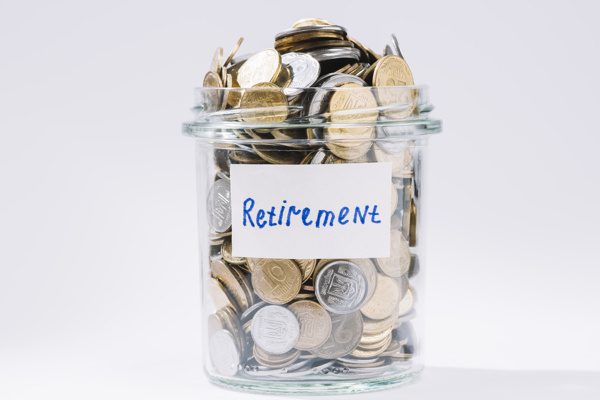
Tax-Deferred Retirement: It’s an old-fashioned myth that retirees in a lower bracket are moderately successful in their investments or savings.
You had six figures, let’s say we owe $100,000 taxes. Give us a quick high-level example of how that would look.
First of all, we had a great accountant to bring that money down to as low as possible, but profits are profits and you’ve got to report them. We still had a major tax bill at the end of the year. What we decided to do was say, “We’re going to put that into a savings vehicle that we can earn some interest on.” The problem with most savings vehicles is that when you withdraw money out, it stops growing. That seems obvious. If I put money into a savings account or a CD, and then I withdraw that money out, how much interest am I now earning on that cash? Nothing. I can only earn interest slowly as I pack money up for the next tax year. I’m always faced with falling back down the staircase down to zero networth and having to build that up again, only to spend it again. It was a never-ending cycle.
What we decided to do was put it into an asset that allowed it to continue to grow, even when we access the cash to pay our tax bill. Using it as a line of credit to ourselves, essentially, we used a cash value life insurance policy designed the bank on yourself way, for the readers who want to learn more about that. We’ll be diving deep into how that works, showing real numbers on the webinar, but we use that to use as a cash source to pay our tax bill. We’ll continue to do so on every tax bill we have. It will add millions of dollars to our networth over our lifetime just by how we’re paying for our taxes. Now everyone’s numbers are going to be different, but those are our figures. You could use that same person, that 35-year-old lady who called me up. We had a Zoom call. She was floored when we saw what we could do with a similar strategy on even a nominal amount of tax every year.
This strategy is so much cooler than what Mark has been able to talk about because you get paid interest on that. You don’t have to pay back that money. There are different ways to do this so that you can maximize the wealth that you’re building while you pay your taxes each year. I’m amazed.
Let’s expand it to real estate. You can do the same with your real estate. You can do the same with your own major purchases like vehicles. Any major purchase, including taxes, this fits as long as you’ve sat down with a competent professional to look at it first. You don’t want to just jump into this half-blind, but you can take back control of that money. It’s a tax-free income stream under current law alongside Roth IRAs and other accounts. It’s a phenomenal change in the mindset of how we make our major purchases.
I’m excited about the webinar. Let’s give them a brief and rundown on what that’s going to look like. First of all, the webinar is going to be on January 21st, 2021 which is a Thursday. We’re going to be doing it from 1:00 to 2:30 Pacific time. To get signed up for that webinar, you go to BlissfulInvestor.com/Mark. Tell us a little bit about what we’re going to be covering in that.
By building wealth off your taxes every year, you'd be set for life without taking a bunch of unnecessary risks. Share on XWe’re going to have some specific ways in which you can lower your tax bill without building up a taxable time bomb in the future. We’re going to be talking about ways on how you can specify as a business owner or someone who’s got a day job, find some incredible tax gaps in the current code to take advantage of for yourself, paying what’s due of course, but never leaving the tax man a tip. That’s my mantra. Also, finding some specific ways you can use the strategy we described to build real wealth on your tax bill and all your other major purchases too. We’ll even be showing some real case studies and examples, and then a chance to see how we can even pull out of this asset a tax-free income stream that will last as long as you do.
I love that. Ladies, the reason that I asked Mark to do this webinar specifically was that two of you called me or emailed me and let me know that you did join up with Mark or Amanda Neely in the past. The whole infinite investing idea is real and you’re discovering how to use it and you love it. I have some other mentors of mine that are also working with Mark like Chris Prefontaine, who you guys also know. There are some people that I trust are working with Mark on this strategy. There are some of you ladies that have given me feedback that this is amazing and you love it.
I wanted to highlight it for the rest of you to see how you might be able to utilize it for yourself. That’s why we’re doing this webinar. I think it’s going to be valuable. Go sign up. It’s going to be at BlissfulInvestor.com/Mark. If you sign up and you can’t make it, he will send a replay out for you ladies. The other thing is if you feel like you would rather speak to Mark and not go to the webinar, you’re already sold, he’s going to give you his calendar link. How can they do that?
If you go to LakeGrowth.com/schedule and then mention Moneeka in the calendar link when you fill out the appointment schedule and you’re setting your time. It’s a fifteen-minute phone call or Zoom call. We would be happy to answer your questions. If you can’t wait for the webinar and want to get right to the answers, I would be happy to schedule that with you right away, but make sure to mention Moneeka in the appointment that you sent. I would be happy to send you a free copy of the chapter that Moneeka and I co-authored together and the awesome book, Real Estate Investing for Women, which was so fun to write. Thank you Moneeka again for the opportunity.
For the people who want to be on that calendar before the webinar, I’d be happy to chat with you guys. I don’t know if this is too much to say, Moneeka, but it may even be that those that attend the webinar get that chapter as well. I’ll leave that up to you to decide, but I want to get this information out to people. I think it will be so much fun. I can’t wait to be there with your readers and your audience again. You’ve got the greatest people in the world.

Tax-Deferred Retirement: If your accountant hasn’t already brought up things like bonus depreciation and cost segregation, be concerned that they didn’t bring it up to you first.
Thank you. I think so too. I love my ladies. We’ll get some time to go through it. We go high level. It’s pretty quick because not everybody’s interested. For those of you who are interested, we’ll get some good time to deep dive. I’ve scheduled for 90 minutes so we have that commitment on our calendar. We can go through the webinar, ask questions and that sort of thing. Ladies, come join Mark and me on January 21st, 2021 which is a Thursday from 1:00 to 2:30 PM Pacific Time and go to BlissfulInvestor.com/Mark. Mark, this has been amazing. Thank you so much for sharing this time with us again.
You’re such a giving person, Moneeka, thank you for what you give to the world, and keep up the great work. We appreciate you.
Thank you. Ladies, thank you for joining Mark and I for this portion of the show. We look forward to seeing you next time. Until then, always remember, goals without action are just dreams. Get out there, take action, and create the life your heart deeply desires. I see you soon.
Important Links
- Lake Growth Financial Services
- BlissfulInvestor.com/Mark
- LakeGrowth.com/schedule
- Real Estate Investing for Women
Love the show? Subscribe, rate, review, and share!
Join the Real Estate Investing for Women Community today:
________________________________________________________________________
To listen to the EXTRA portion of this show go to RealEstateInvestingForWomenExtra.com
To see this program in the video:
Search on Roku for Real Estate Investing 4 Women or go to this link: https://blissfulinvestor.com/biroku
On YouTube go to Real Estate Investing for Women
——————————————————
Learn how to create a consistent income stream by only working 5 hours a month on the Blissful Investor Way.
Grab my FREE guide at http://www.BlissfulInvestor.com
Moneeka Sawyer is often described as one of the most blissful people you will ever meet. She has been investing in Real Estate for over 20 years, so has been through all the different cycles of the market. Still, she has turned $10,000 into over $5,000,000, working only 5-10 hours per MONTH with very little stress.
While building her multi-million dollar business, she has traveled to over 55 countries, dances every single day, supports causes that are important to her, and spends lots of time with her husband of over 20 years.
She is the international best-selling author of the multiple award-winning books “Choose Bliss: The Power and Practice of Joy and Contentment” and “Real Estate Investing for Women: Expert Conversations to Increase Wealth and Happiness the Blissful Way.”
Moneeka has been featured on stages including Carnegie Hall and Nasdaq, radio, podcasts such as Achieve Your Goals with Hal Elrod, and TV stations including ABC, CBS, FOX, and the CW, impacting over 150 million people.





